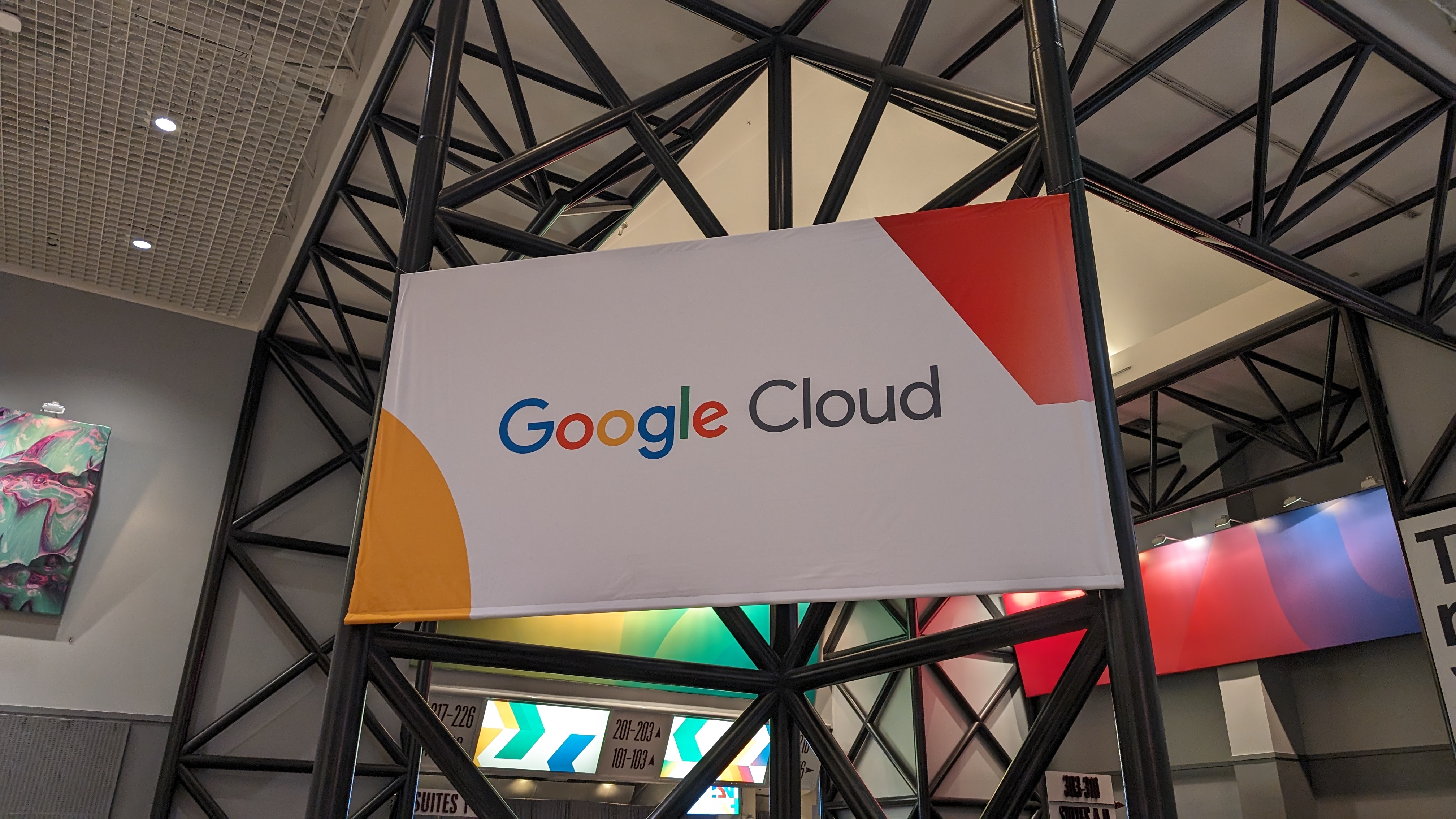
Google Cloud Next 2024 is over for another year, signalling an end to a packed week of news and announcements from one of the world's biggest players when it comes to cloud innovation.
The show featured an opening keynote from Google Cloud CEO Thomas Kurian that was packed full of new product and service announcements, with insight from major customers.
We were live in Las Vegas for the event, so if you want to relive any of the news as it happened, read on below...
So what are we expecting to see from Google Cloud this week? In a word - AI.
The company has been bullish in its use of AI across the board, and has been ramping up Gemini and Vertex in many of its product lines.
Elsewhere, we're probably set to see a host of new updates and upgrades for Google Workspace - again, most likely to be around AI, but with the scale of the office software suite, who knows?
We may also see some new hardware - with Nvidia recently announcing its latest flagship Blackwell chips, it's very likely we'll see something with Google announced here.
Good morning from a beautifully sunny Las Vegas (although our view of the US eclipse yesterday was...sub-par, it has to be said)
We're getting ready to head over for the day one keynote, hosted by none other than Google Cloud CEO Thomas Kurian himself.
With a star-studded lineup of customers, partners and guests, the keynote should also include a whole host of news and announcements, so stay tuned for more soon!

We're en route to the keynote! Let's hope the Wi-Fi is ready...
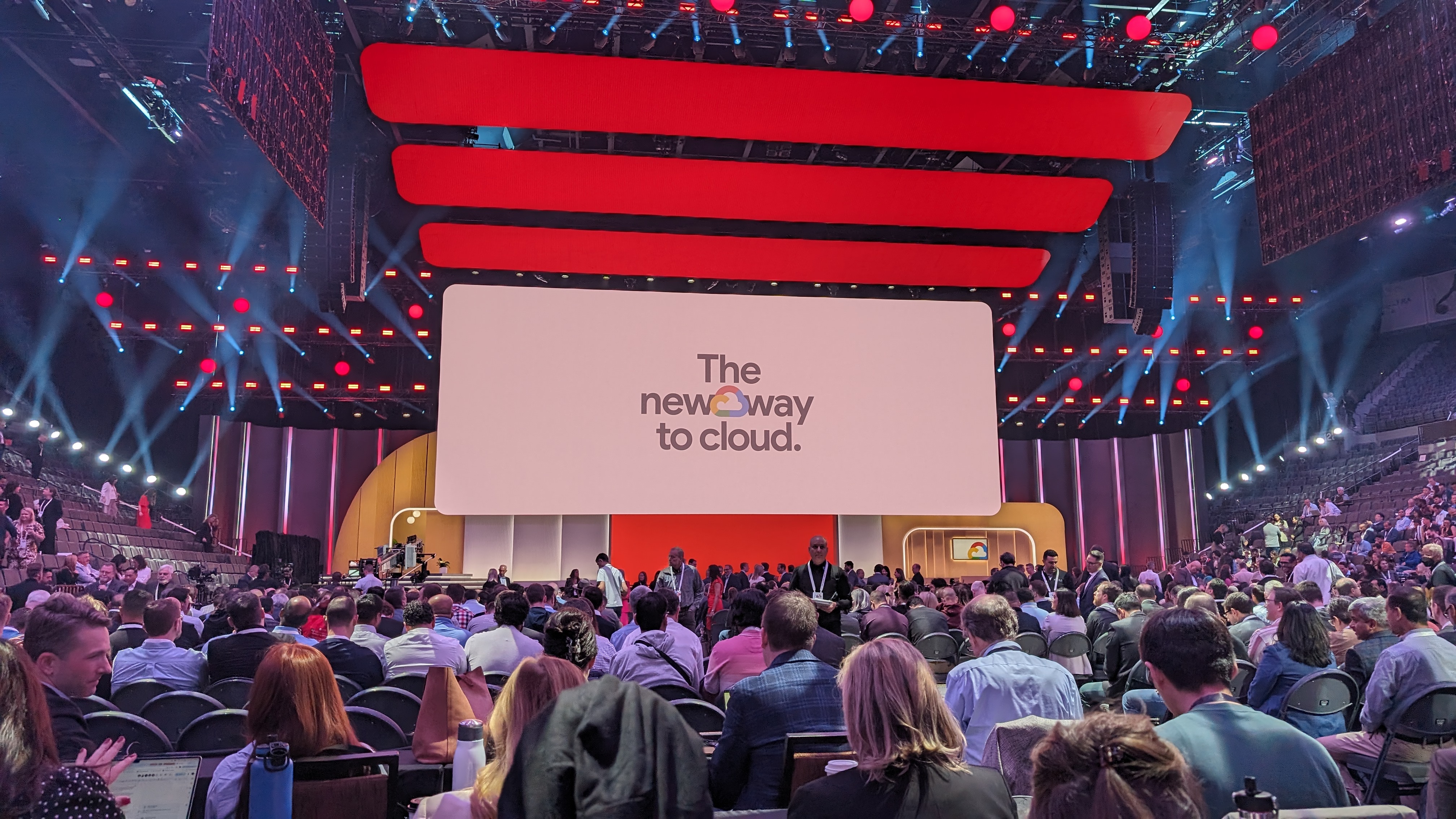
We're in and seated at the Michelob Ultra arena, nice and early for the keynote.
It's already pretty packed out, with Google partners, executives, employees and many more all here already and ready for the keynote.
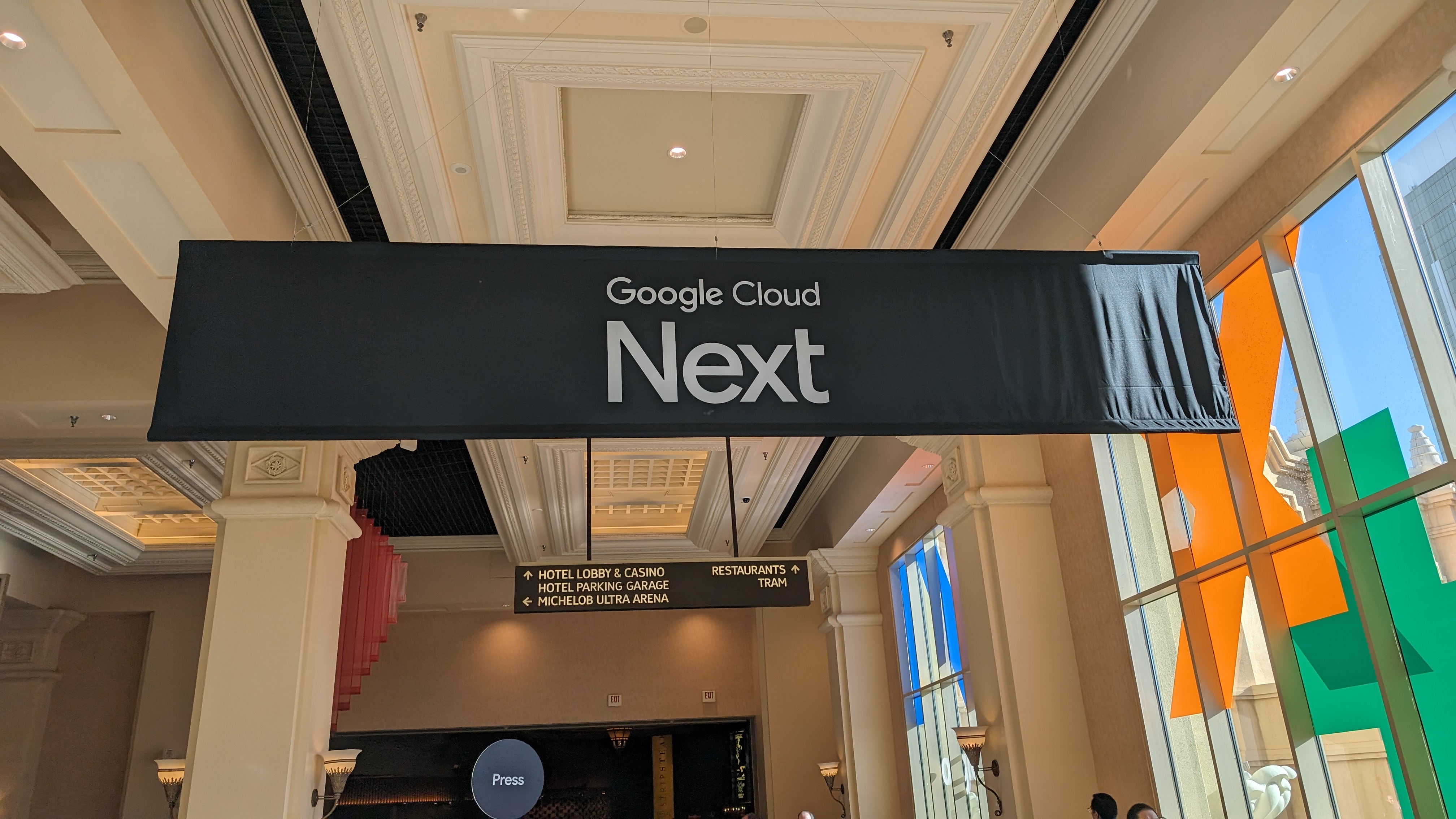
In case you've missed it, we've already had a few news pieces sneak out ahead of the keynote...
This includes the launch of Google Vids, the company's latest additon to Google Workspace, allowing for companies to build and edit videos from scratch.
There's also lots more AI coming to Google Meet and Chat, including a new "Take notes for me" function that will allow users to focus on their call.
And a load more AI security tools are coming to Google Workspace as the company looks to make the platform safer for everyone.
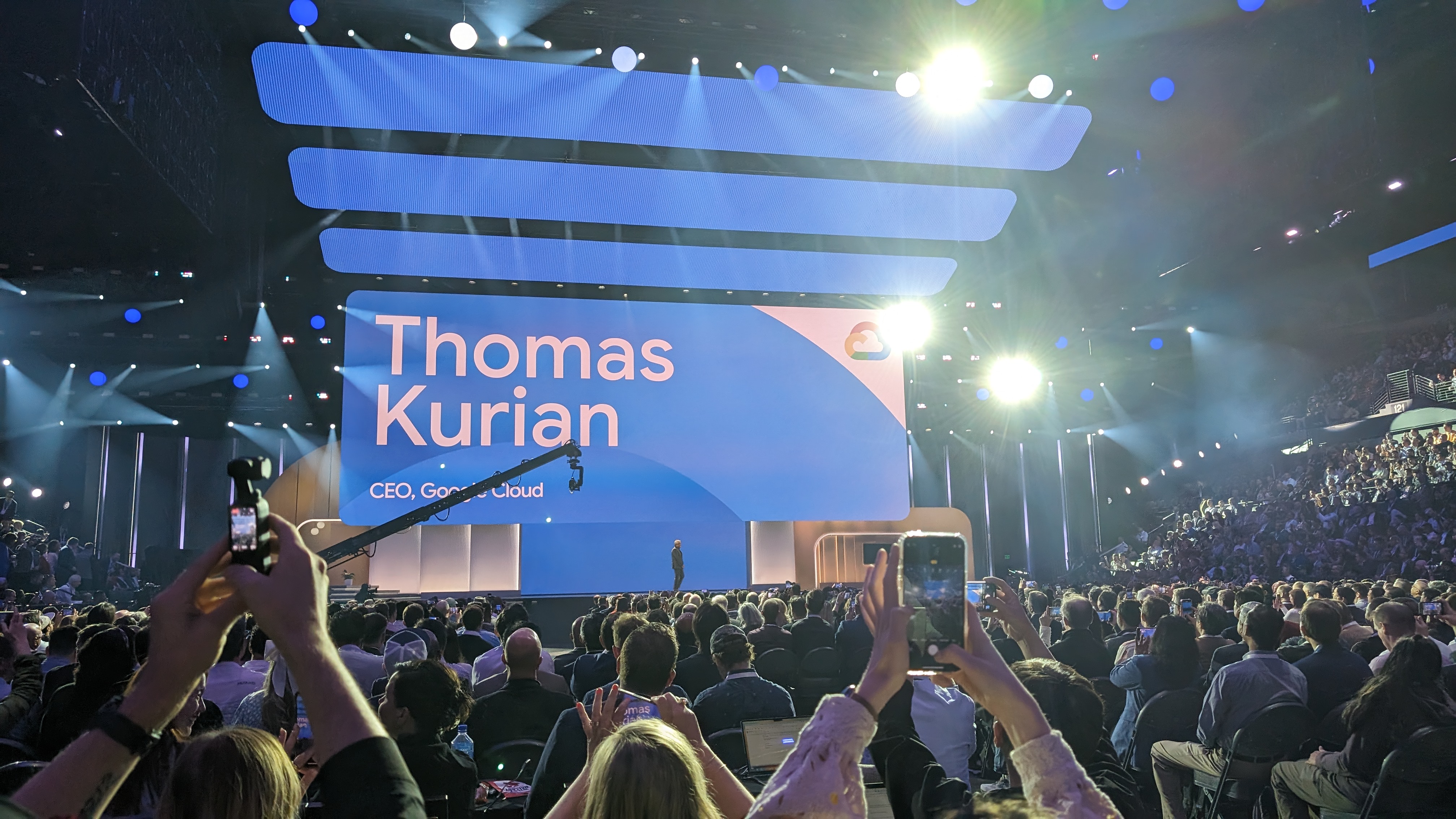
The lights go down (after a pretty funky light countdown), and after a video explaining what Google AI can do around the world, it's keynote time!
Thomas Kurian, Google Cloud CEO, takes to the stage.
Google has made over a thousand product updates since the last Cloud Next, he says, claiming that this makes the company the fastest-growing cloud provider in the world.
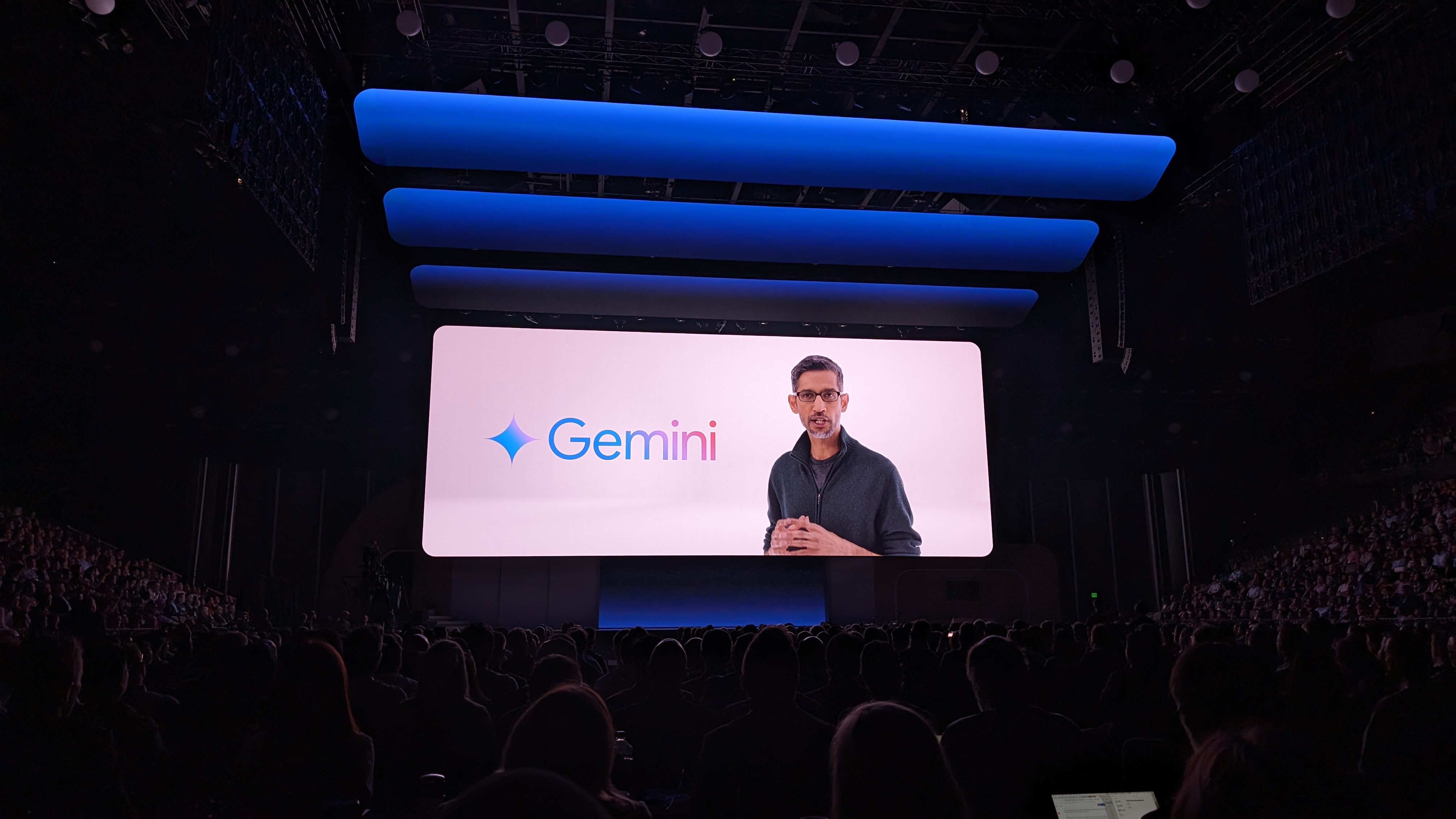
Next is a video from Alphabet CEO Sundar Pichai, who extols the value of AI, and the work the cloud arm of Google is doing.
He gives a specific shoutout to Gemini, and the latest version of the AI model - Gemini 1.5 Pro, which offers more opportunities for enterprises everywhere.
"With these advances, enterprises can do things with AI that just weren't possible before," Pichai says.
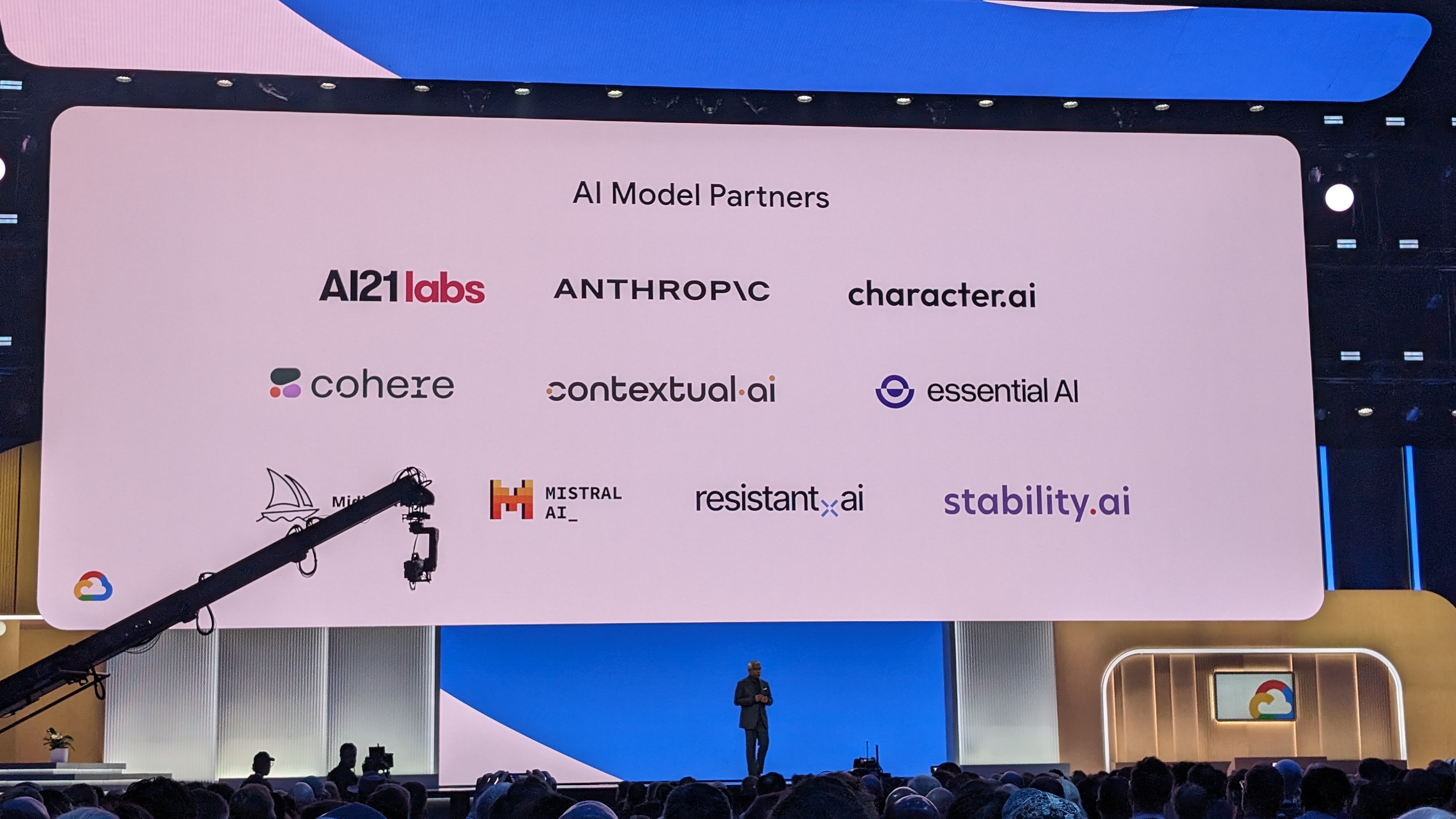
After that little boost, Kurian returns.
He gives a shout-out to the customers using Google Cloud to build AI apps and offerings using a wide range of models and tools.
Kurian notes how Google Cloud is offering the latest hardware releases to help companies around the world provide a modern infrastructure that is ready for the next generation of cloud.
That extends to the data cloud, security cloud and collaboration cloud - which includes Google Workspace.
"That's just the tip of the iceberg - there's a whole lot more," he says.
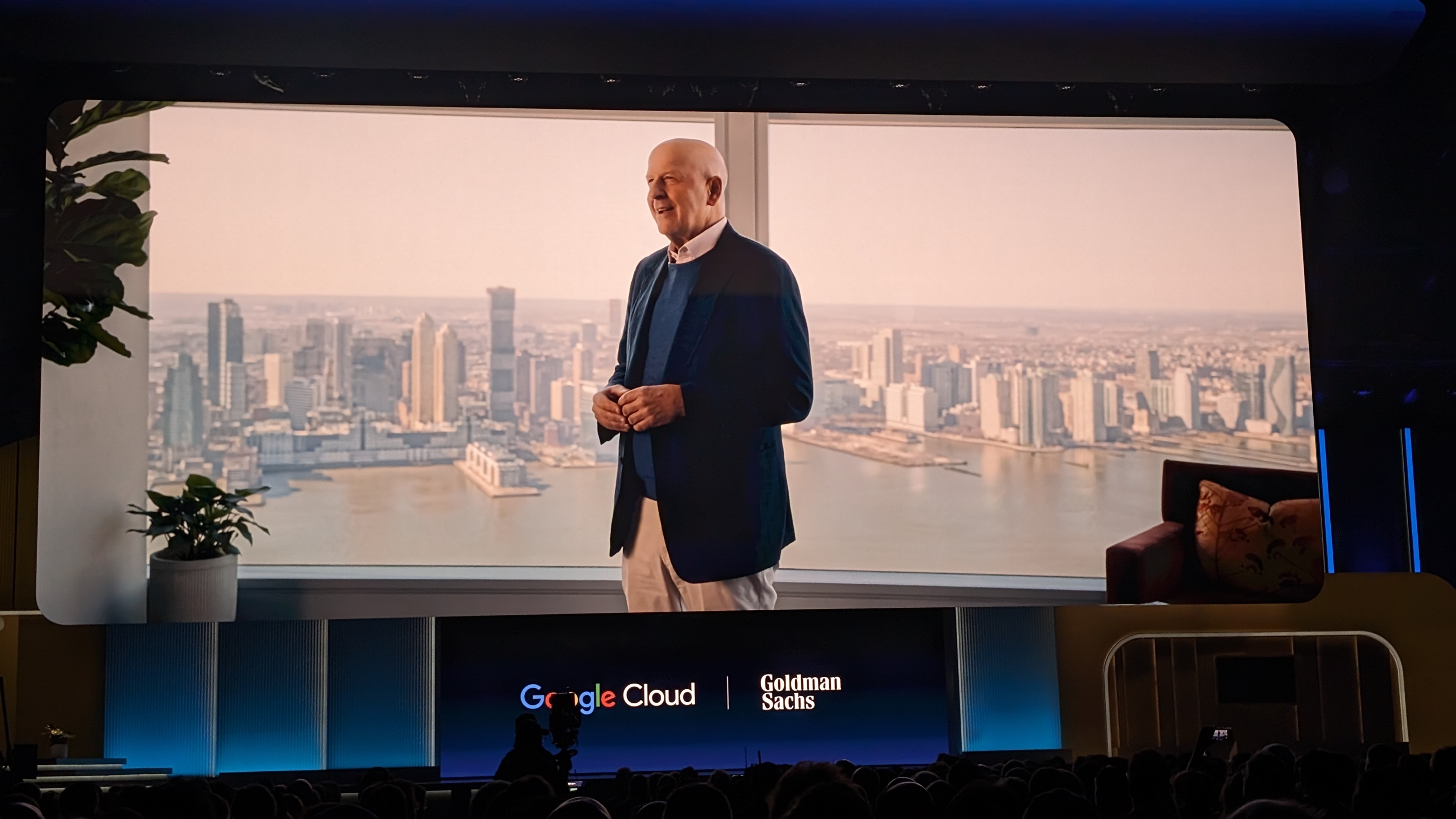
Kurian says the big announcements today are around generative AI. Customers are increasingly building AI models using all sorts of cloud services, Kurian notes, teeing us up for his first guest, Goldman Sachs CEO David Solomon.
Solomon says the company is using AI across the business, from improving efficiency to boosting productivity - but there's still a long way to go.
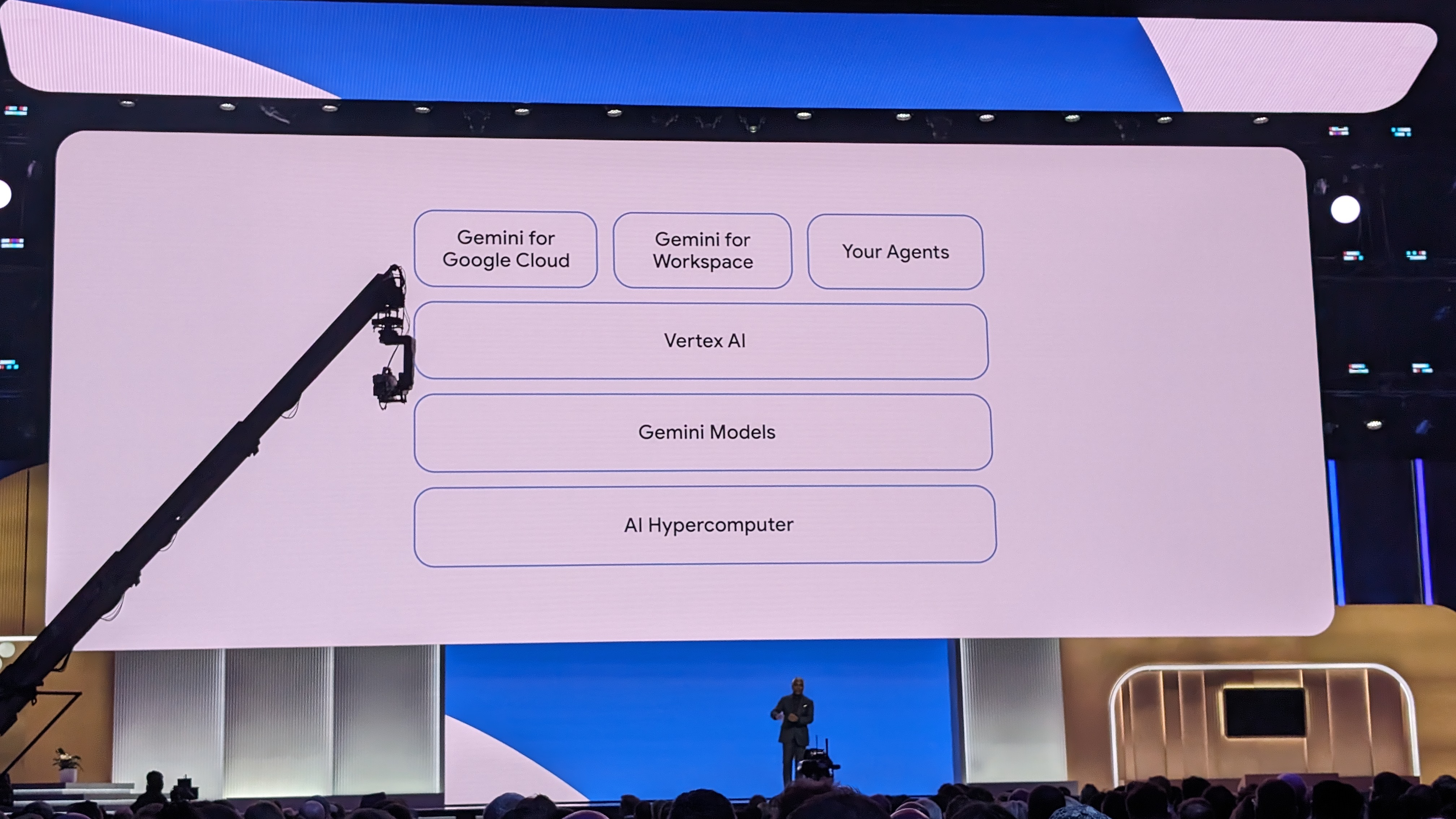
Now we have some news - Google's new AI Hypercomputer, the bedrock of its AI platform, including Gemini models and Vertex AI
"We're the only cloud to ffer widely used first-party and third-party models," Kurian notes.
To talk us through the AI infrasturcture news, Kurian welcomes Amin Vandaht.
First big launch - the A3 Mega VMs, offering huge growth in productivity. There's also support for Nvidia's latest GB200 NVL72 powerhouse chips, as Google's own TPU v5p, its msot powerful and scalabale TPU to date.
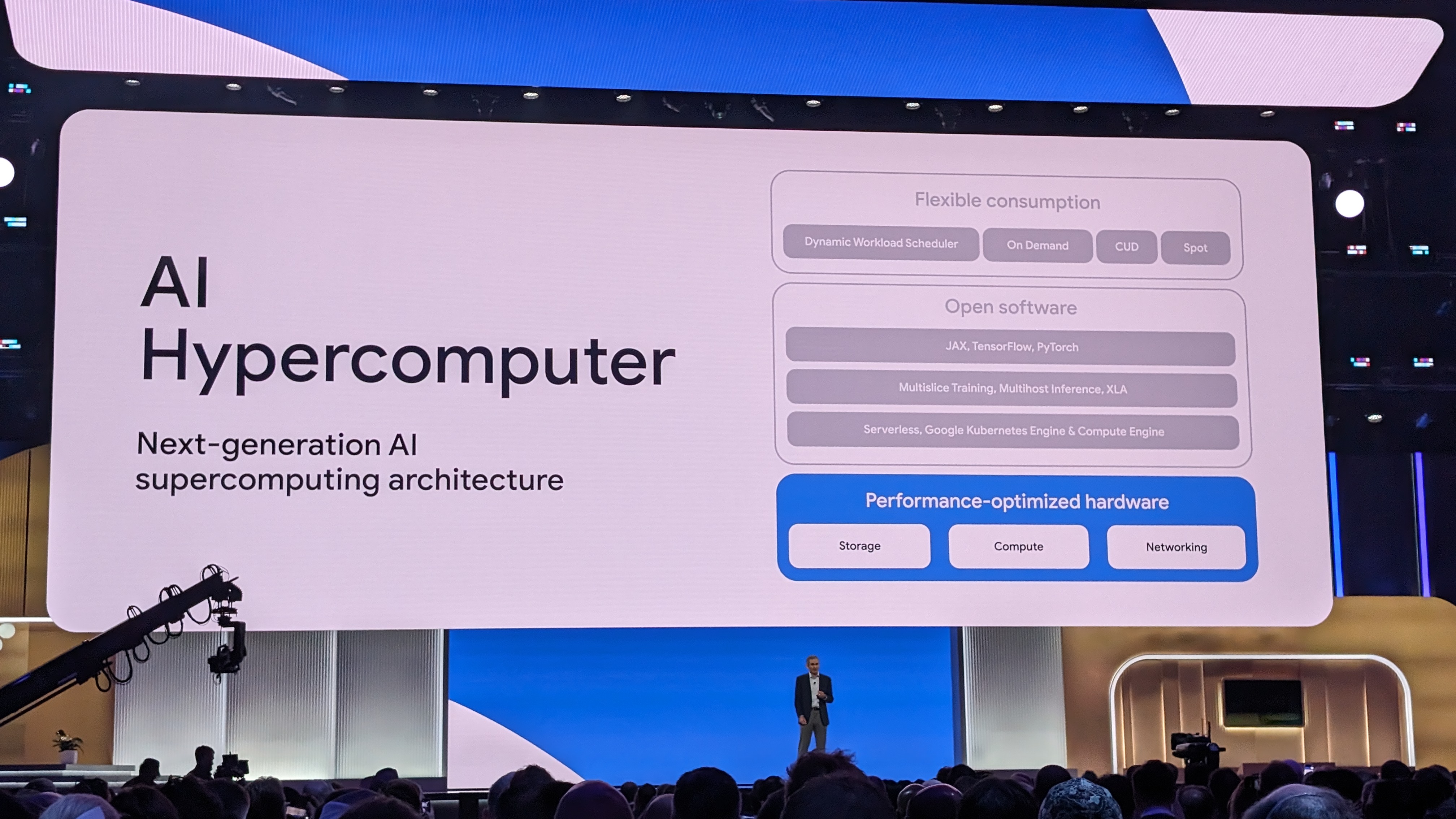
Google has huge plans to offer end-to-end infrastructure through its AI Hypercomputer platform, which provides everything from storage to hardware.
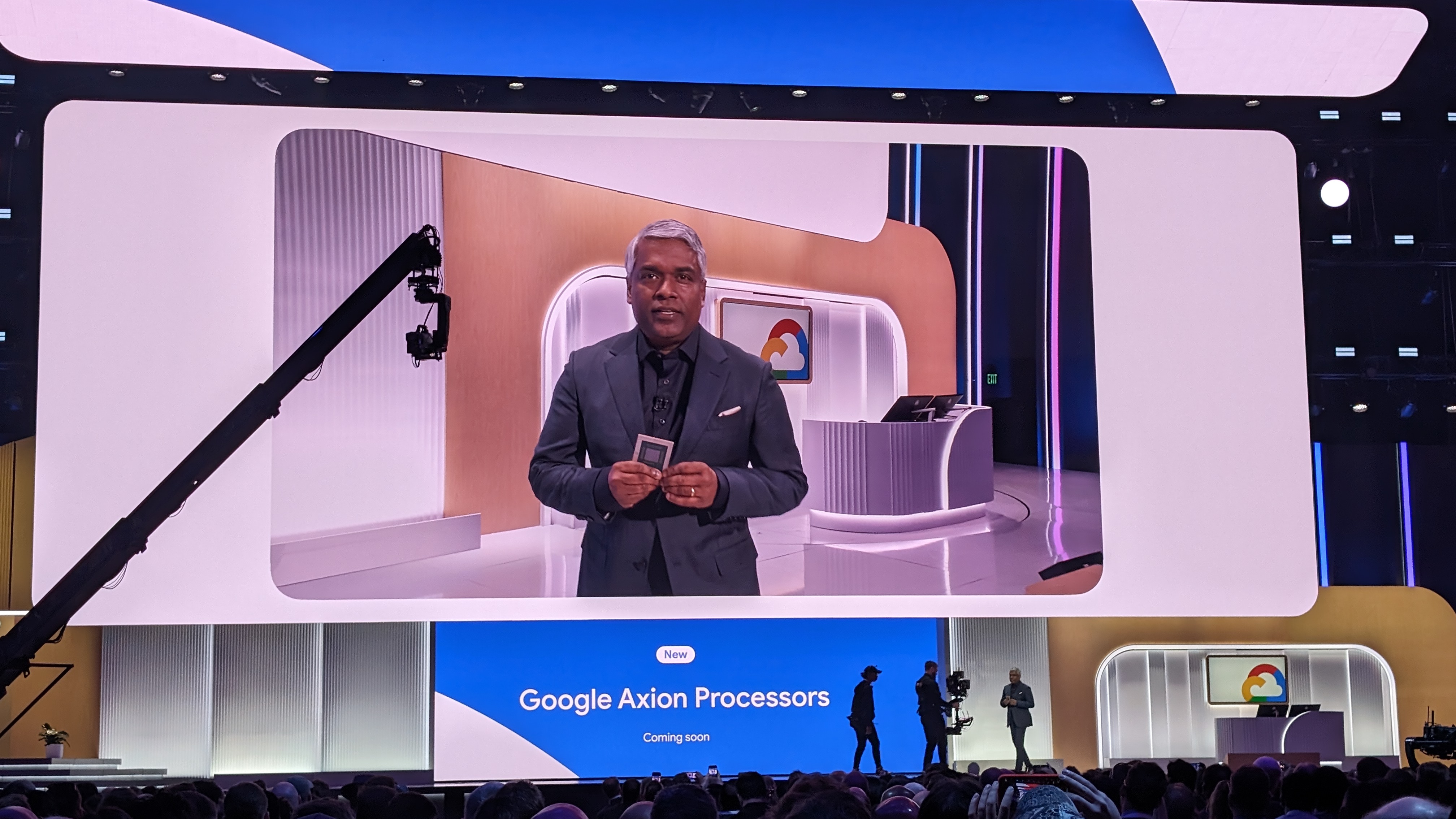
After rattling through a whole load of announcements without pausing for breath (we'll try and catch up later) - we think there were a few more AI-focused announcements revealed.
We do pause though with the announcement of Google Axion - the company's first chip for the data center. Built in assocation with Arm, it promises 60% better energy efficiency, and is already being deployed at scale.
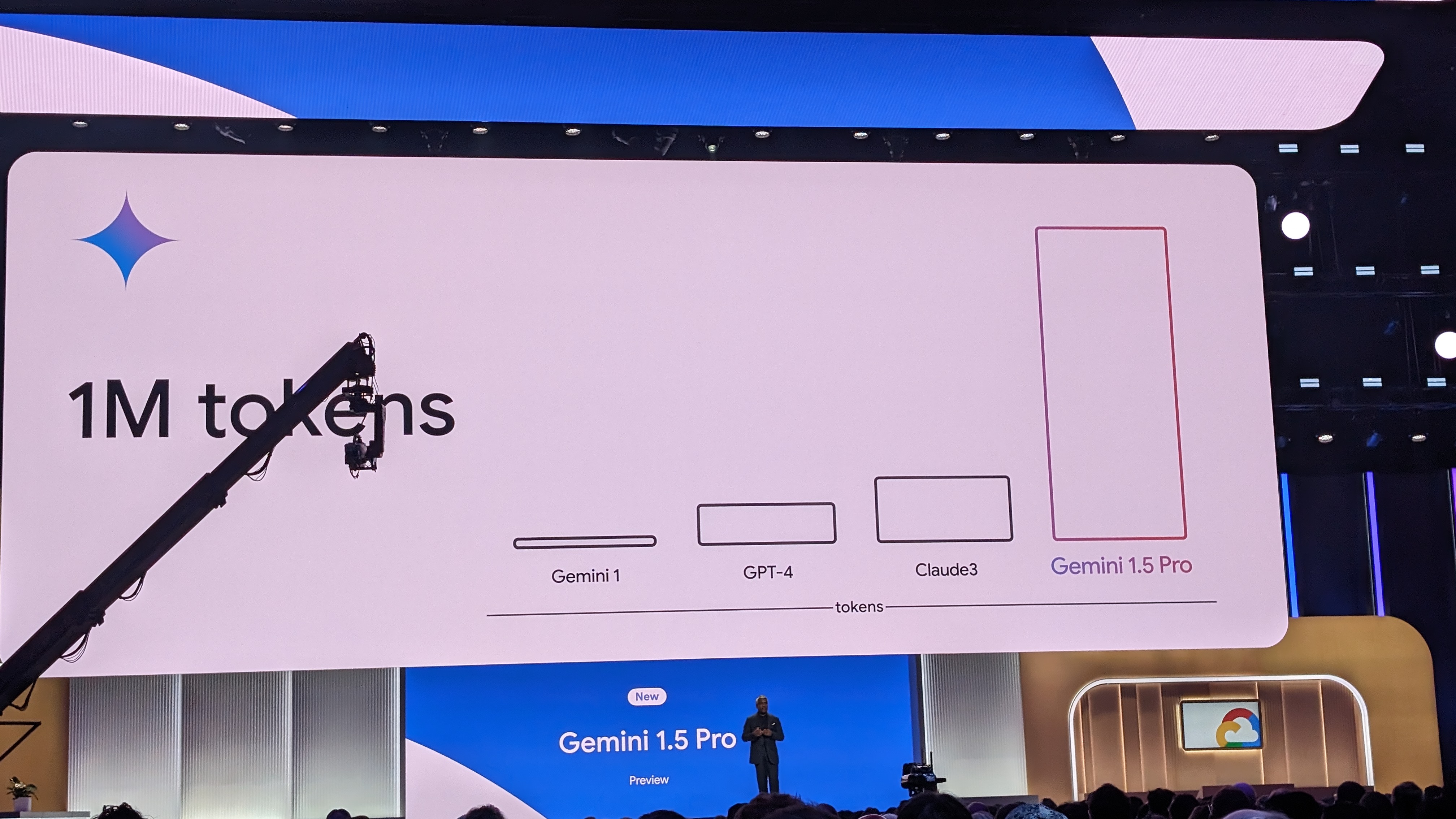
Quick as a flash, we're on to AI, specifically Gemini 1.5 Pro, which is now available in public preview.
Kurian runs through a number of possible use cases, from financial services to universities to start-ups looking for an easier way to code.
"With these additions, Google Cloud continues to be the only cloud provider to offer such services," he adds.
These models can also be finely-tuned to however you need, and Google is now announcing Supervised Tuning for Gemini Models, to get the most out of these AI models.
Now it's on to grounding results - which can now be done with Google Search, "perhaps the world's most trusted source of factual information", Kurian notes.
This will improve result quality, and significantly lower the chance of hallucinations, Kurian says.
The models can now be even more finely-tuned with new Prompt Management tools, including a nw side-by-side function to explain why some prompts do better than others, along with a new Rapid Evolution tool that can help rollouts quicker and easier.
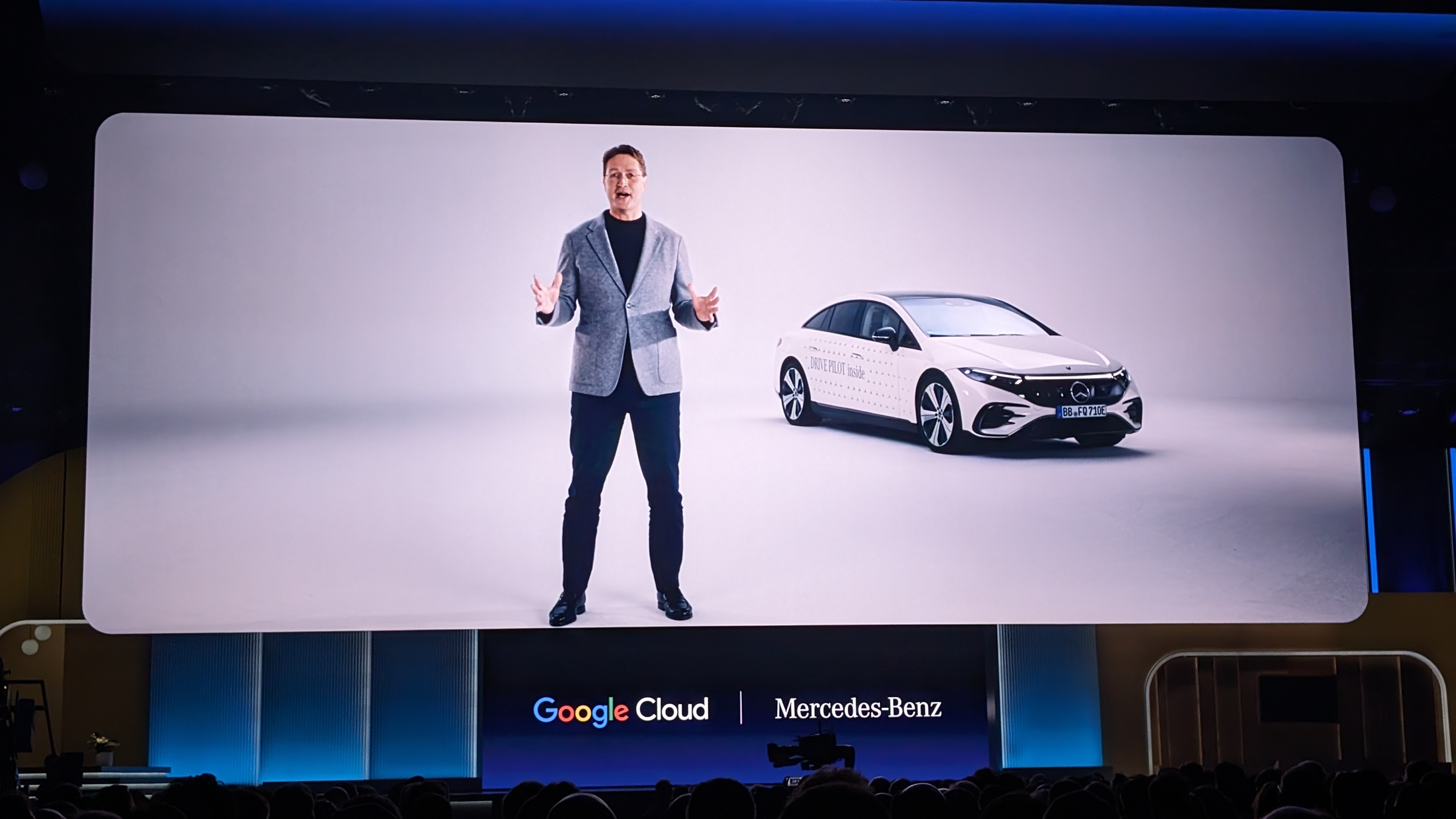
Now it's on to some wider use cases - starting with Customer Agents.
We're hearing now from Ola Kallenus, the CEO of Mercedes-Benz, around how Google Cloud is helping it offer a high-end customer experience through AI, creating a more personalized experience.
This could even expand to automated driving soon, he hints.
Gemini Pro on Vertex AI is also being used on Samsung's latest Galaxy 24 smartphones, Kurian reveals, as well as providing extra security, safety, privacy and data protection.
To help create the next generation of agents, a new Vertex AI Agent Builder offers a much simpler process to train, edit and launch AI-powered tools in the future, including controlling and grounding responses.
We're now seeing a few demos of how this new customer agent platform can work, including how shoppers can use it to craft a specific request to track down a certain product.
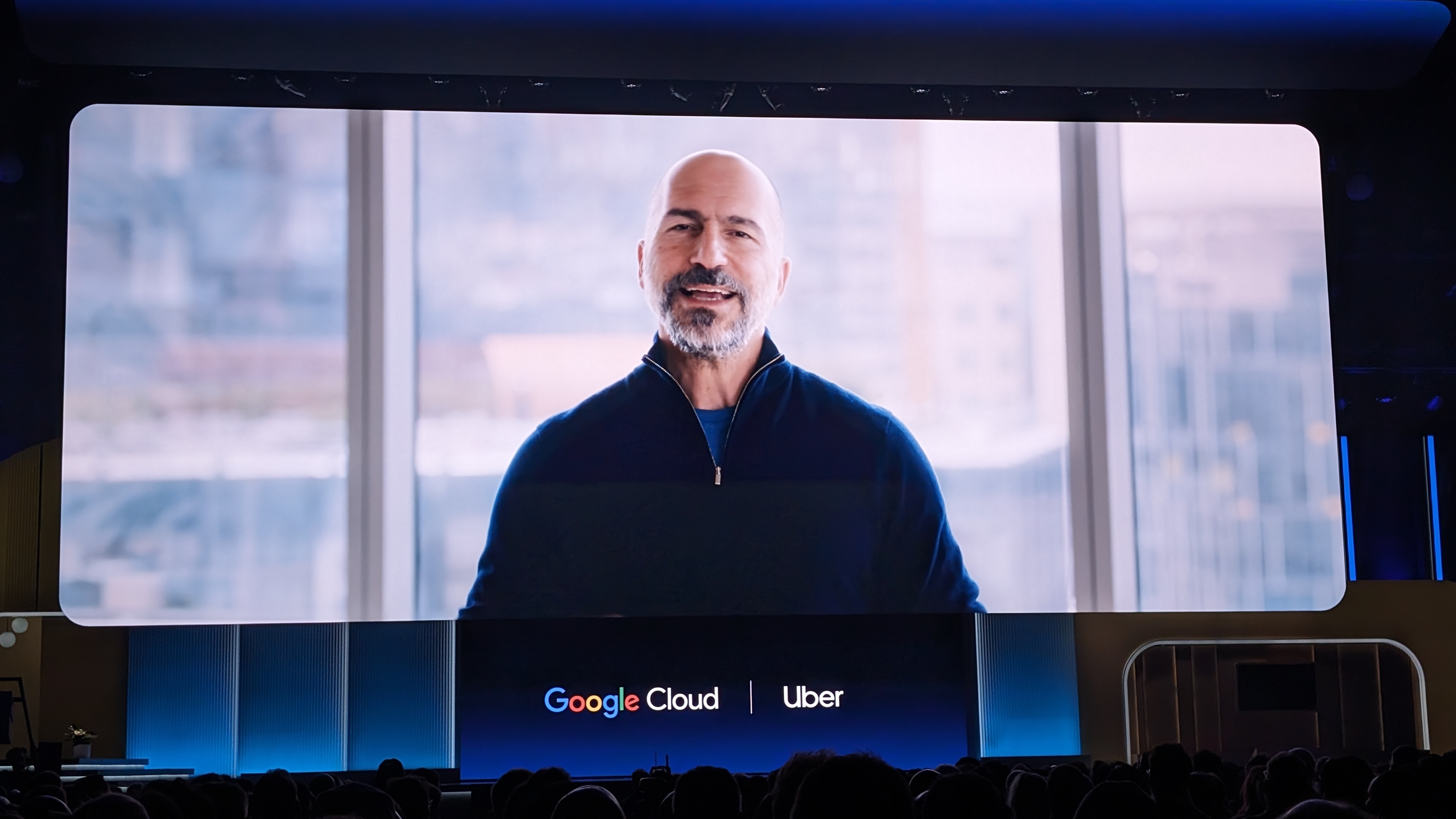
Now we're moving on the employee agents, which will help companies make sure their workers are collaborating together effectively.
To hear about one particular examples, we hear from Daria Khosrowsahi, CEO of Uber, on how his company is doing just that. He's particularly keen to talk about how it is helping boost productivity and efficiency - and even employee retention, using Google Cloud's AI.
Now a change - Aparna Pappu, chief of Google Workspace is here to talk about how the office software suite is changing.
Unsurprisingly, AI is front of mind, and she notes how "Help me write" suggestions are already proving a major success.
The next step - boosting Gemini even further.
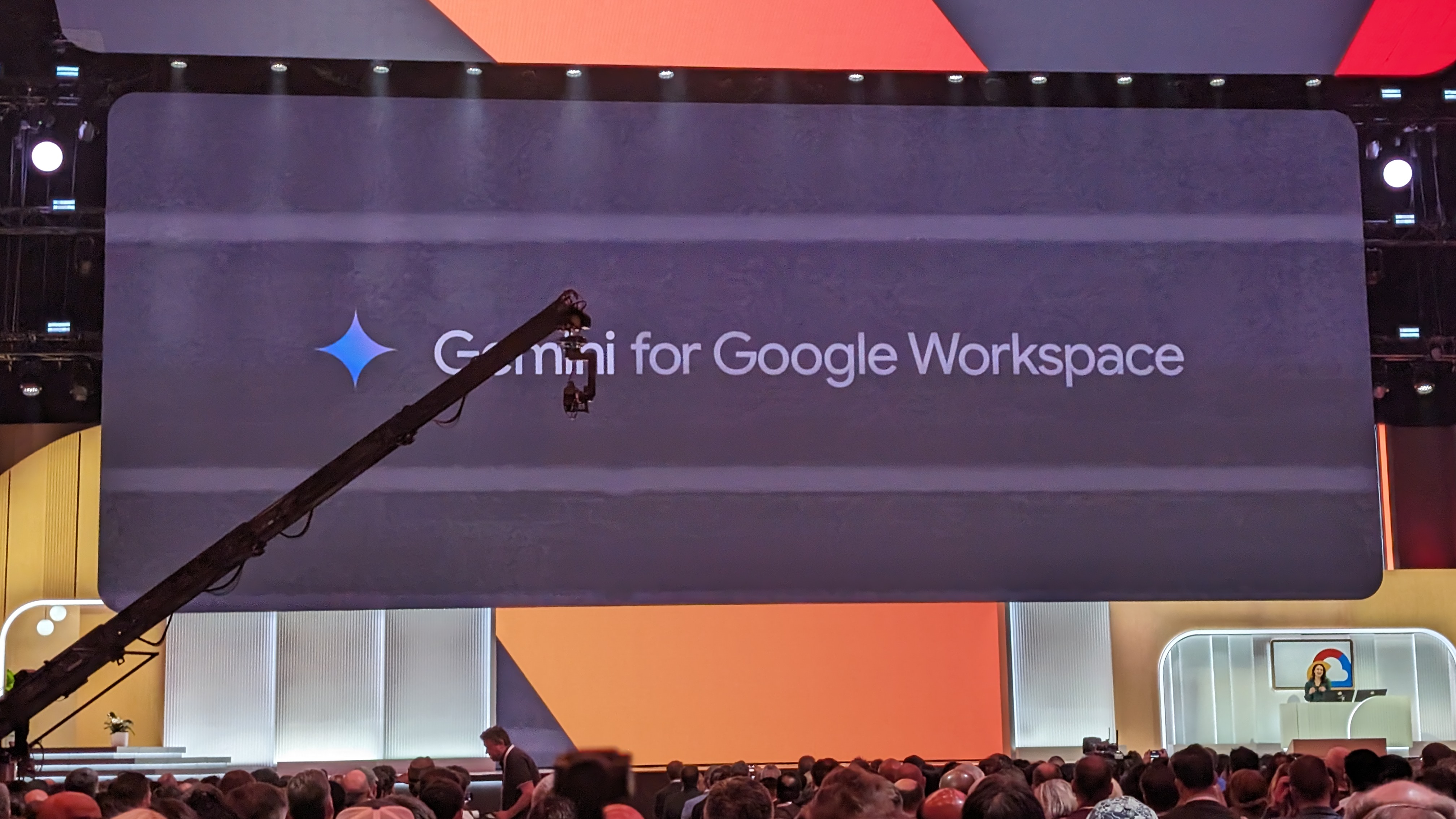
A little slam against Zoom and Microsoft Teams, as Pappu says Google Meet is trouncing them in video and audio quality.
To bosot this further, a new AI Meetings and Messaging add-on looks to boost this even further.
There's also a new AI Security add-on to boost privacy and protection, and a new Gemini in Google Chat tool to provide summaries.
We're treated to a few in-depth demos showing how Gemini is set to play an even greater role in Google Workspace, including summarizing meeting notes from lengthy transcripts and checking whether proposals comply with compliance proposals.
Now, we're moving on to how Vertex AI can help empower employee agents, including the use of custom models, multi-modal input support, grounding and extensions, and extra add-on frameworks.
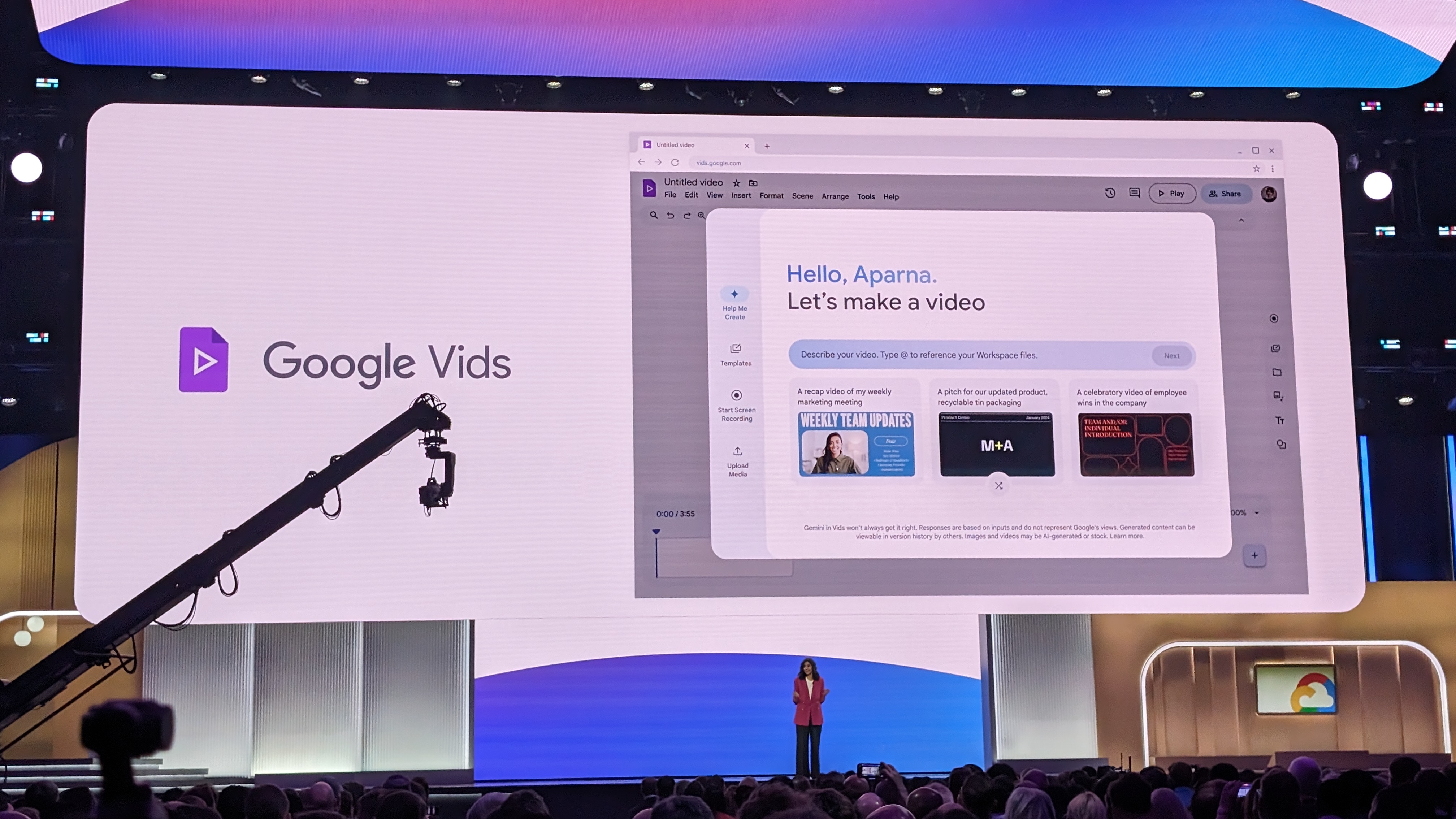
Now, we're moving on to Creative Agents, particularly in how creative and marketing teams are benefitting.
This extends from slides to image creation - but now, even further, with the launch of the latest addition to Workspace - Google Vids.
The new tool allows businesses to create professional-quality videos with a few simple prompts, with full editing and customization options to make sure they get exactly the video they want.
Pappu notes that the launch will help businesses of all levels embrace video, possibly for the first time - and shows us a demo where Gemini suggests storylines, styles, tone and more.
And because it's part of Google Workspace, there's full integration with Docs, Sheets and more, and boosted collaboration across your teams.
Next up, there's a boost in image generation, with Imagen 2.0 now generally available in Vertex AI.
There's also text-to-live image, making it easier to create generated AI images with just a few words.
Lastly, there's digital watermarking for AI images created by Imagen 2.0, and new editing modes to make it easy to remove unwanted elements in an image, add more elements, and expand borders to create a wider view.
A demo of these tools show how a business can use the platform to brainstorm ideas before creating prototypes of various styles, themes and more, and building a narrative and standalone images for an advertising campaign.
Next up, we're switching to data agents, and the role Google Cloud can play in boosting those. We hear from Walmart EVP Suresh Kumar about how it is using huge amounts of data with AI to create new insights and personalized experiences.
These agents are built to search through all your company's data to draw out insights and trends like never before.
Google Cloud is adding BigQuery to its search qualities, including BigQuery Data Canvas and new vector indexing tools to make this even more thorough.
There's also Gemini in Looker, available in preview, allowing you to "chat" with your business data, all giving you the chance to get further access and insights like never before.
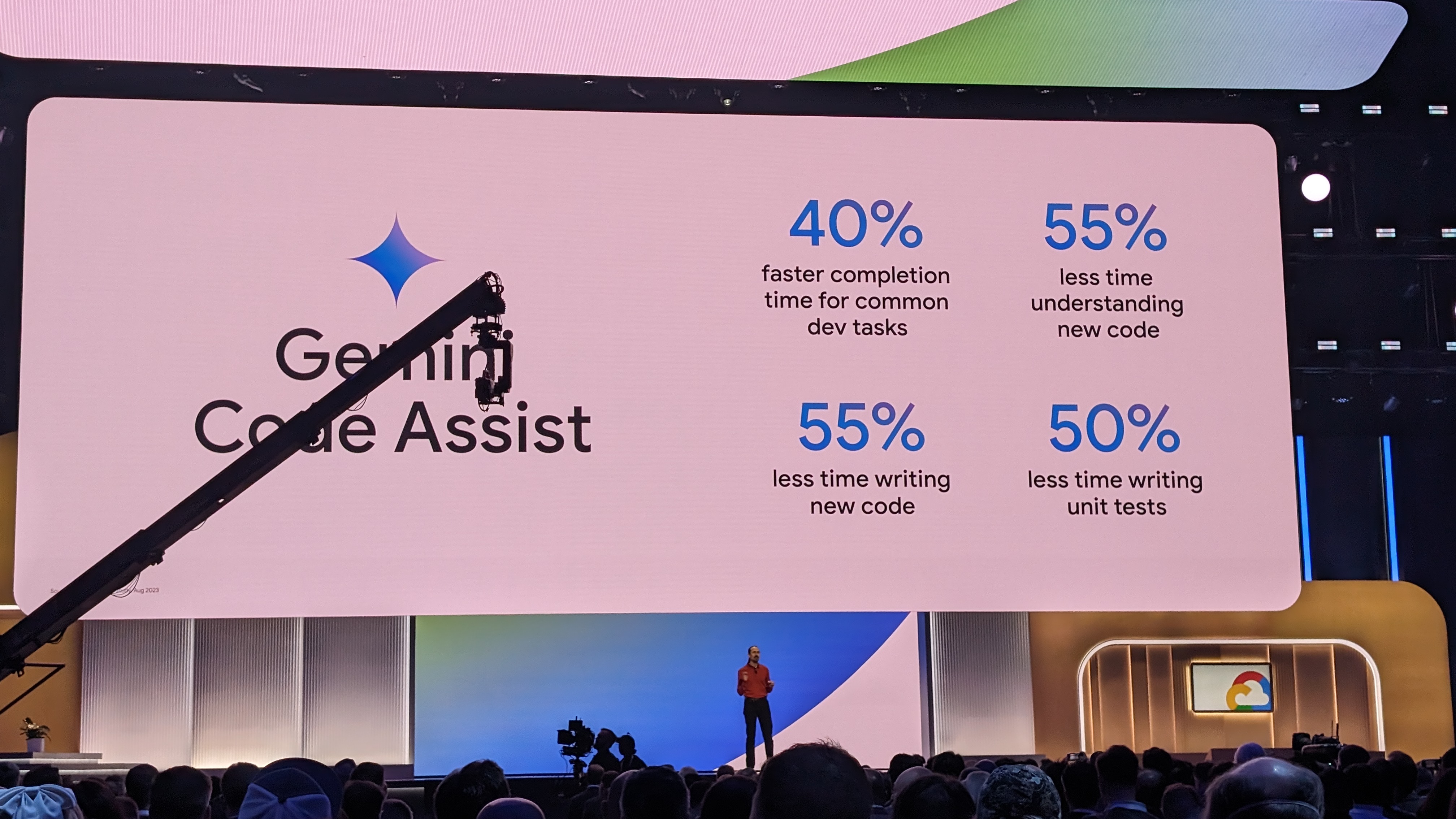
Next, it's on to coding - with code agents, as AI is set to bring big changes into how the field works.
Gemini Code Assist has already seen strong traction, and the company is now expanding this across Gitlab, Github, on-premise and off.
There's some new additions - Gemini 1.5 Pro is coming to Code Assist, bringing a 1 million token window to coding, "revolutionizing" coding, the company says.
There's also Gemini Cloud Assist, working across your app framework to get much smoother and easier rollouts and expansions for your business.
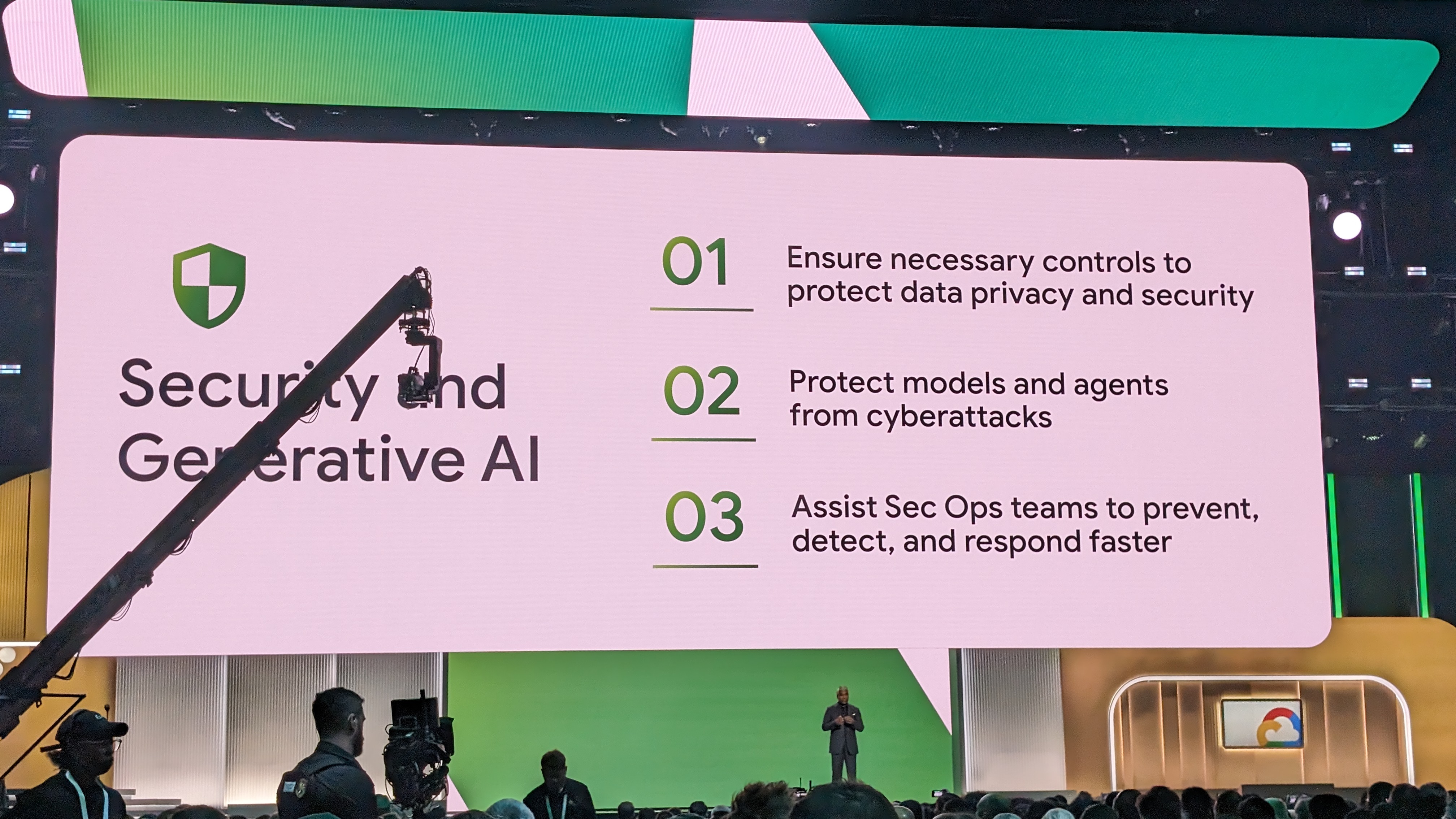
Finally, we're moving on to security - with AI set to play a major role here as well.
Thomas Kurian is back, to talk about ensuring controls and boosting protection using generative AI.
Unsurprisingly, there's a few more news announcements to come.
Gemini in Threat Intelligence will provide in-depth research and flagging threats before they affect your business, allowing for natural language prompts to spot issues.
Gemini in Security Operations will provide AI-assisted investigations, and Gemini in Security Command Center will help businesses react to attacks or threats before they do too much harm.
And with that final flourish, it's time to wrap up.
"Our paltform offers choice at every layer," Kurian notes, from hardware to AI models and so much more.
"We're at a pivotal moment in our industry," he adds, "we're reinventing infrastructure to support a new age of AI"
"Together we're building a new way to cloud."
And that's a wrap on the day one keynote! There's much more to come here at Google Cloud Next, so stay tunedto TechRadar Pro for more news, announcements and other insight to come throughout the day.
Good morning and welcome to day two of Google Cloud Next!
After yesterday's news extravaganza, we're getting ready for another bumper day. This morning sees the developer-focused keynote, which should see a deeper dive into some of the products and services we saw yetserday.
But we've also got media sessions with Thomas Kurian, CEO of Google Cloud, and Kristina Behr, VP of Product, Google Workspace Collaboration, so there's plenty more to come today!
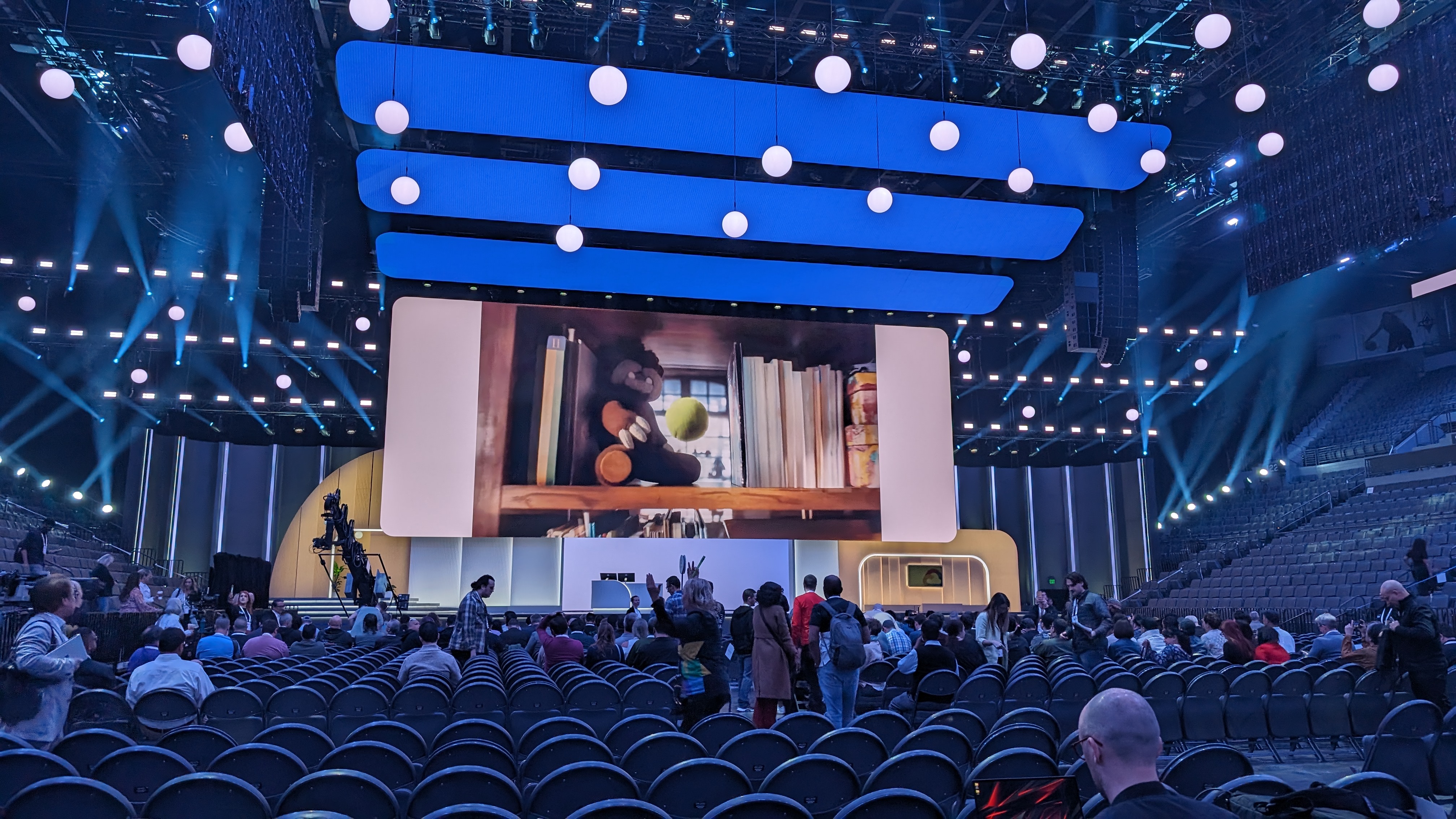
We're nice and early today, and already seated for the day two keynote.
Hosted by Chen Goldberg, GM & VP of Engineering, Cloud Runtimes at Google Cloud, we're set to hear from customers and developers alike about how the company is helping boost their innovation.
Ten minutes to go, and we're intrigued to see what will be in store today - don't forget, if you haven't already checked it out, we've published a fair few news stories on yesterday's announcements already:
This includes the launch of Google Vids, the company's latest additon to Google Workspace, allowing for companies to build and edit videos from scratch.
There's also lots more AI coming to Google Meet and Chat, including a new "Take notes for me" function that will allow users to focus on their call.
And a load more AI security tools are coming to Google Workspace as the company looks to make the platform safer for everyone.
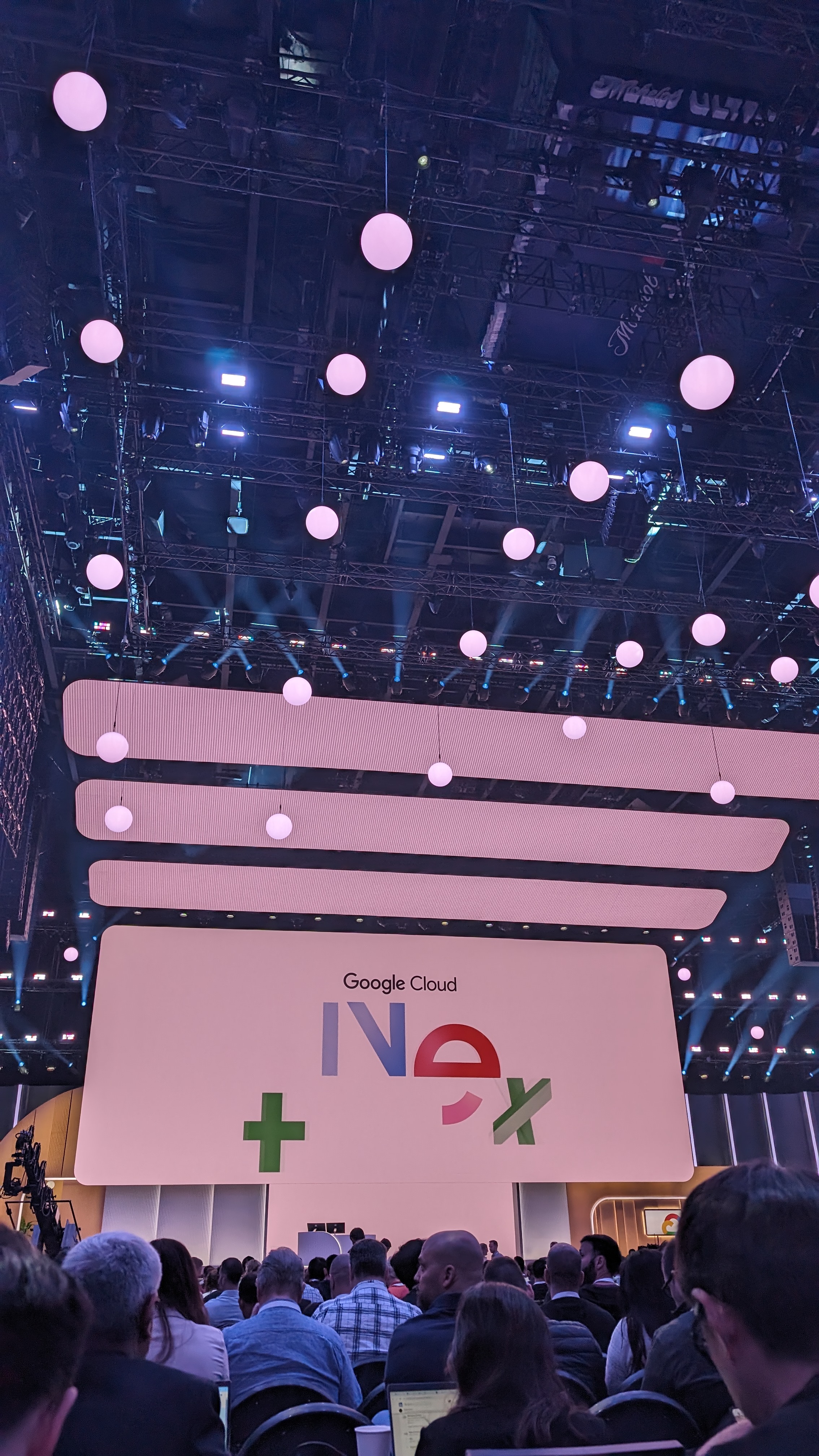
At least being early means we've had plenty of time to admire these cool lights dangling above the seats and the stage...maybe a light show to come?
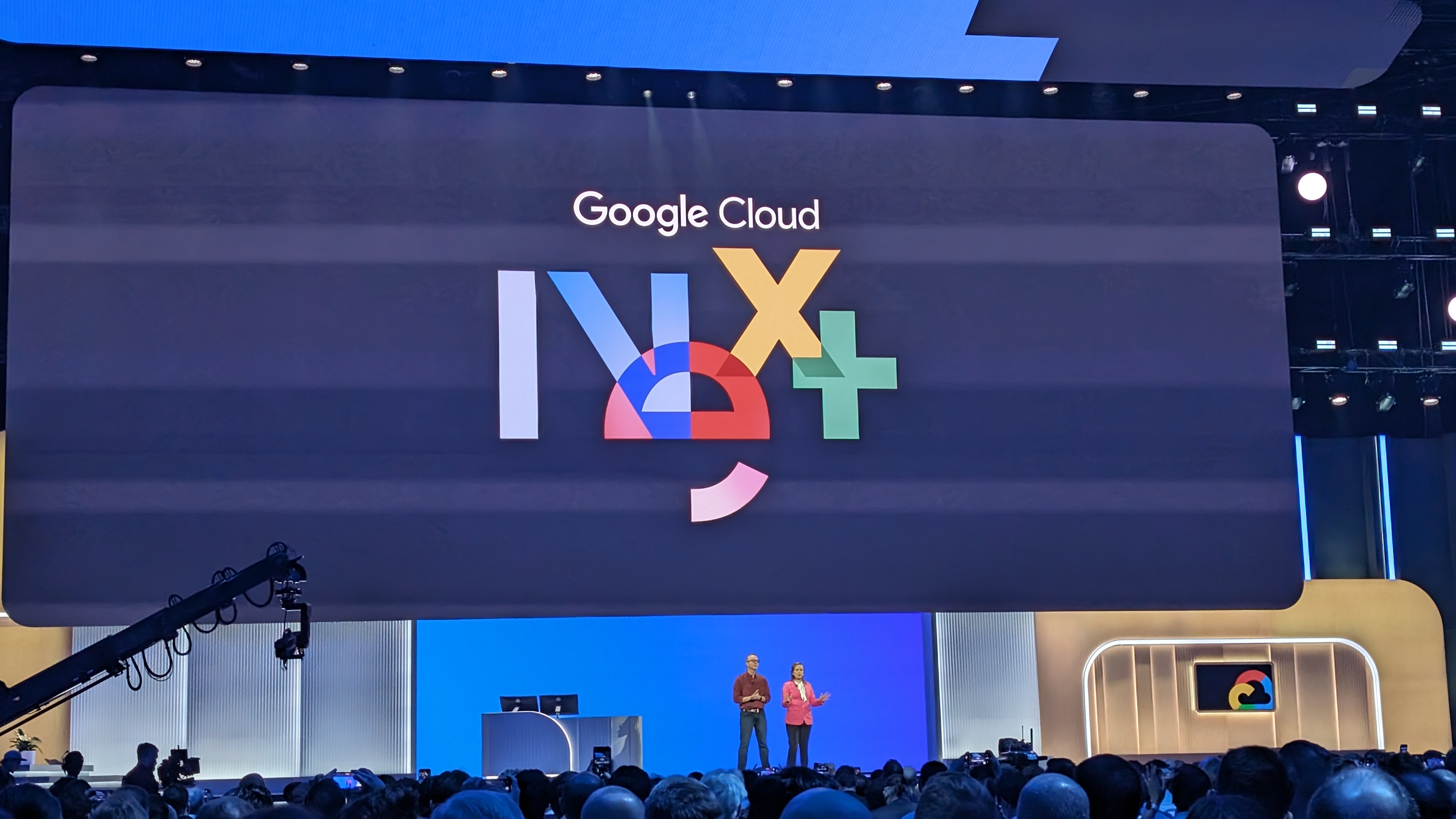
And it's time to begin - Richard Seroter and Chloe Condon from Google Cloud take to the stage.
Showing the progress Google Cloud's AI tools have made in the past year, they highlight how the recent launch of Gemini 1.5 Pro are set to boost developer work no end.
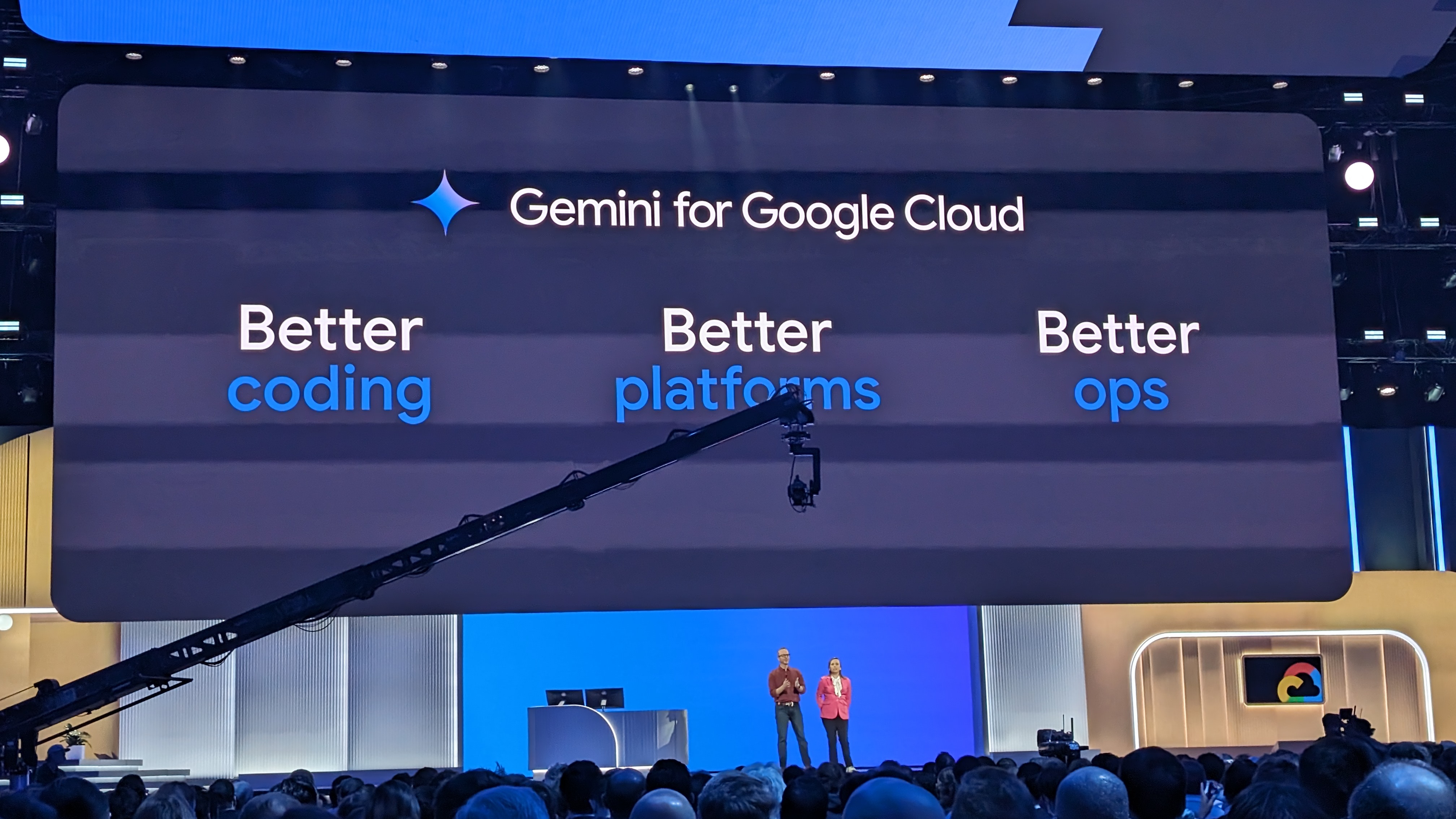
"The future of development is giving you smarter tools to build smart apps," Seroter states.
With that, Brad Calder, GM and VP Google Cloud, joins Ricard on stage.
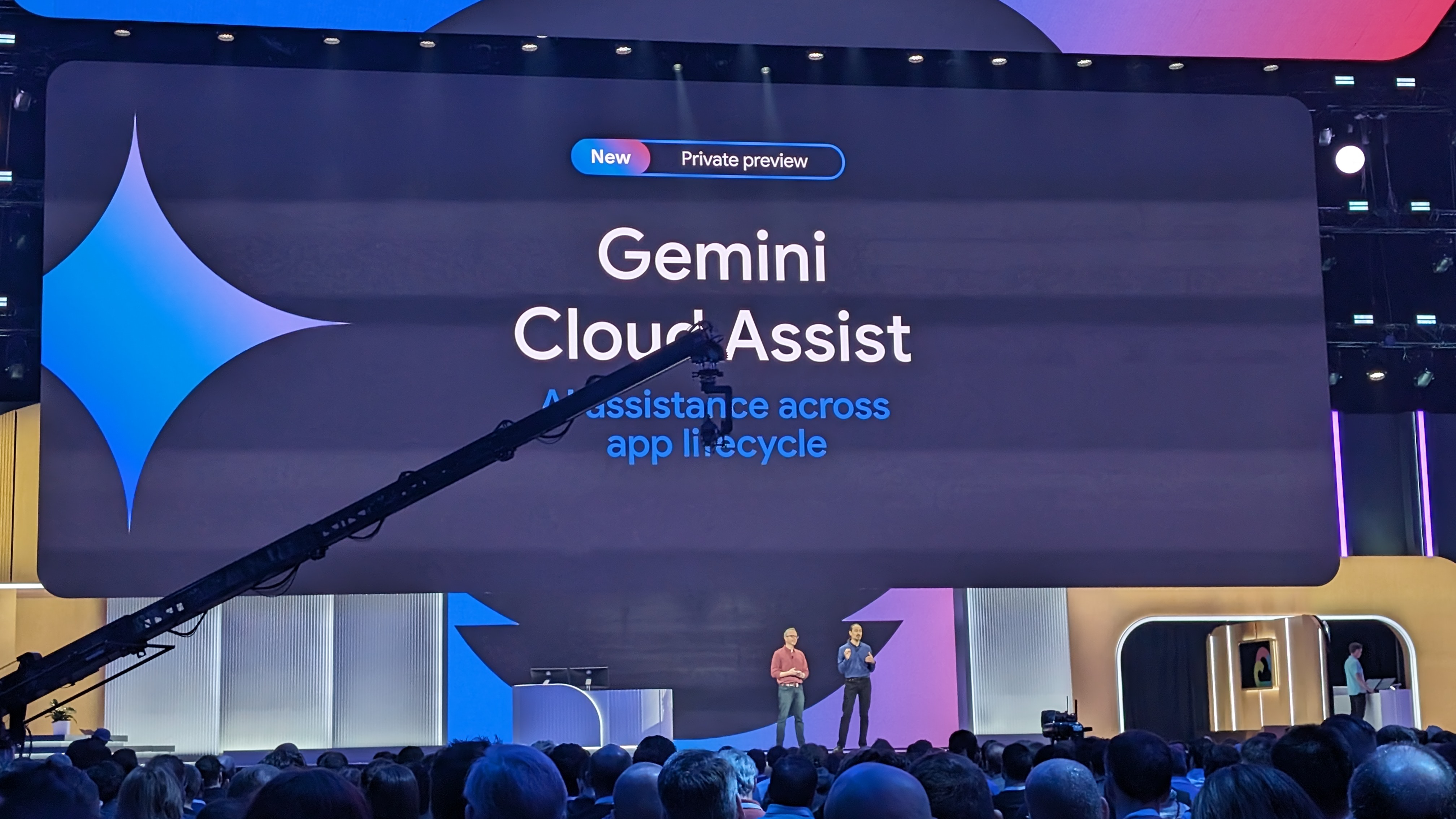
Calder is keen to talk about Gemini Code Assist, specifically how it has added some new features, upgraded versions and comprehensive code reviws.
He also highlights the launch of Gemini Cloud Assist, which offers AI assistance across the app lifecycle.
We're then treated to a demo of how Gemini Cloud Assist can help a downed website recover, with the platform detecting an alert in the application, offering a summary of the issue, and providing suggestions of what steps to take.
Gemini Cloud Assist is able to delve deep into specific code-related issues, identifying problems, offering solutions and actions to get a business back on its feet.
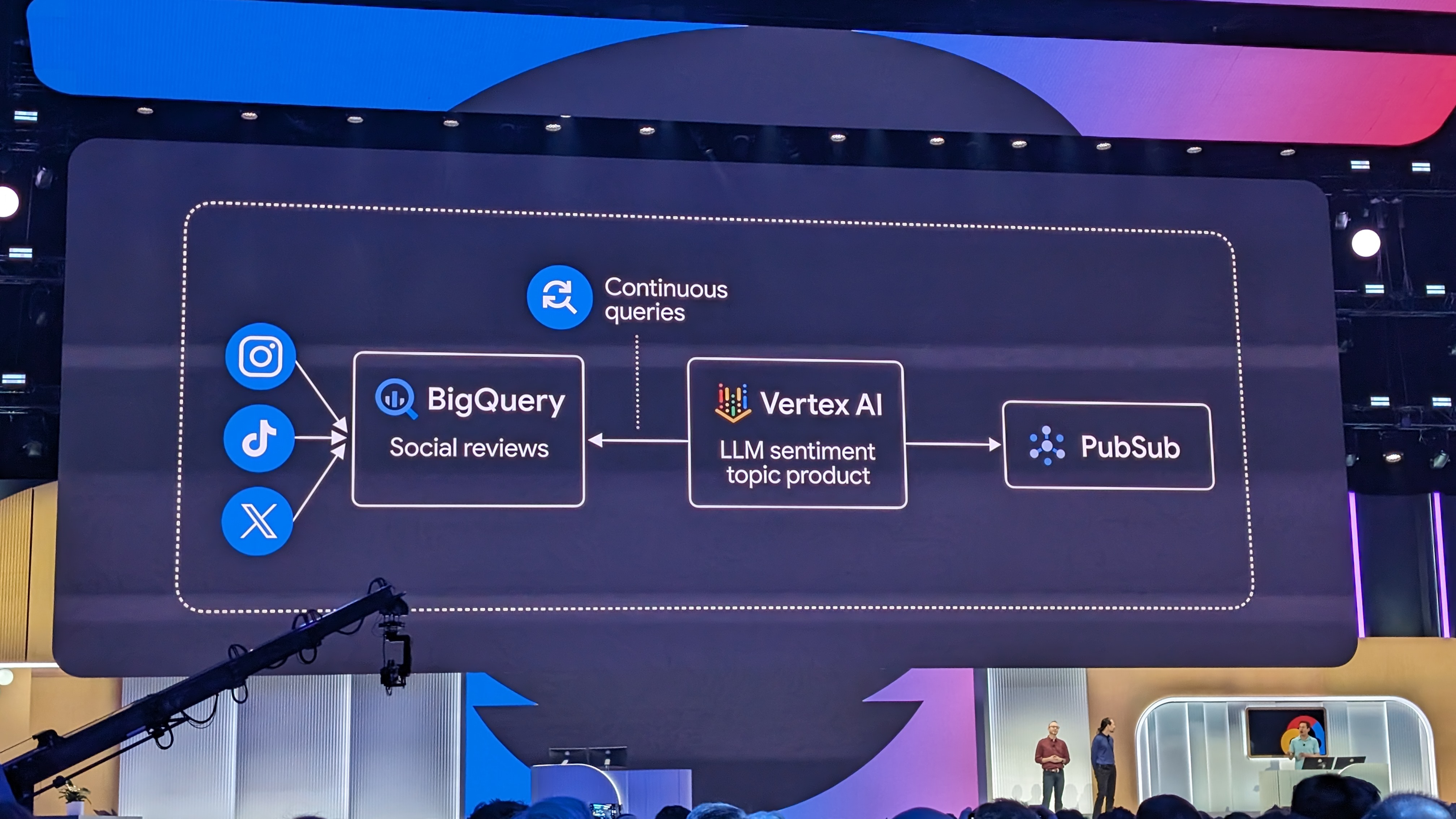
Next up, we're looking at Gemini in BigQuery, where developers can now benefit from continuous queries, and insights across all types of data.
A demo shows us how an app tracking social media sentiment and mentions can be built with BigQuery and Vertex AI with just a few simple prompts, with Gemini helping generate code that previously might have taken hours to write.
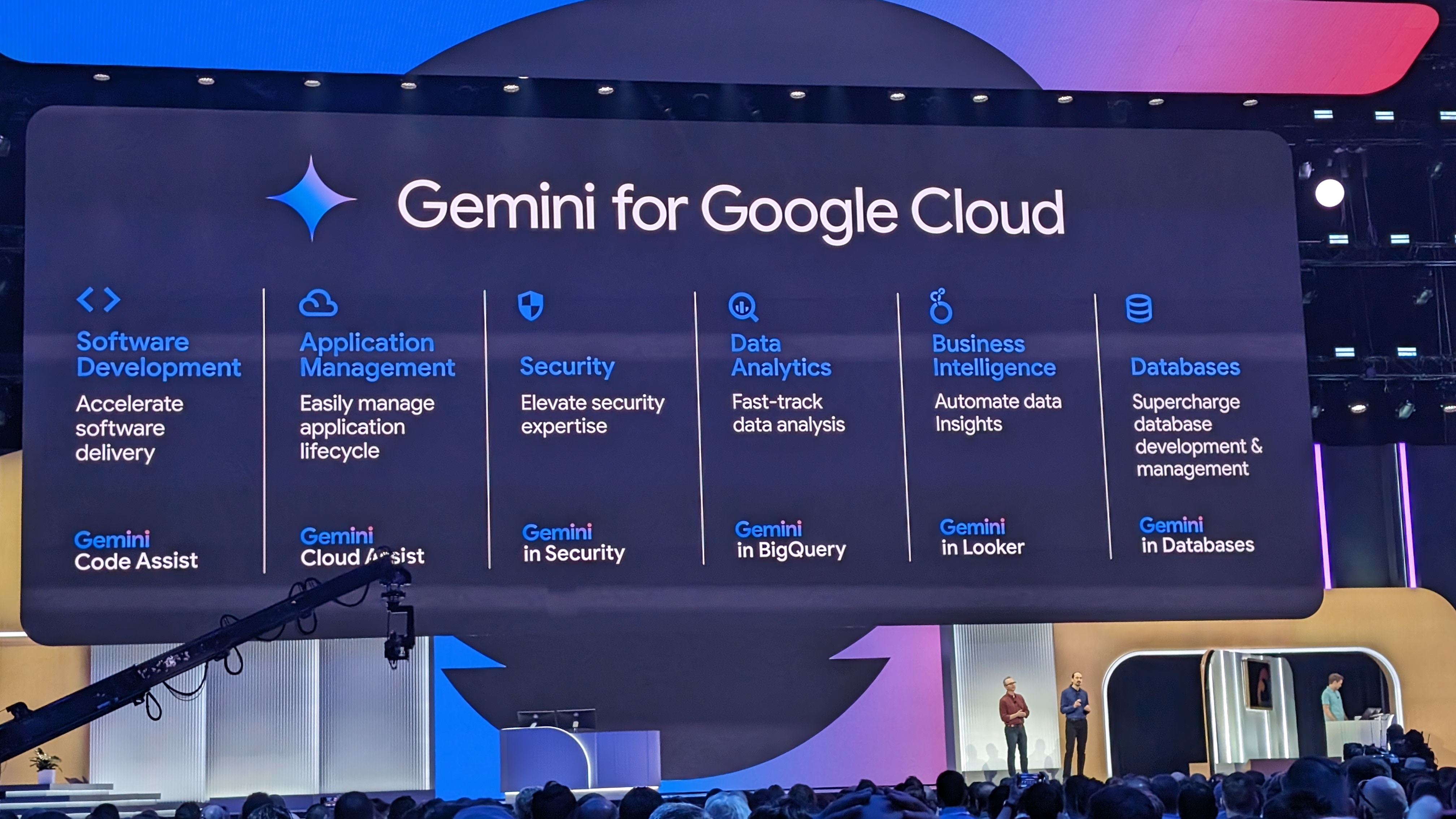
"This provides a new era of AI assistance," notes Calder.
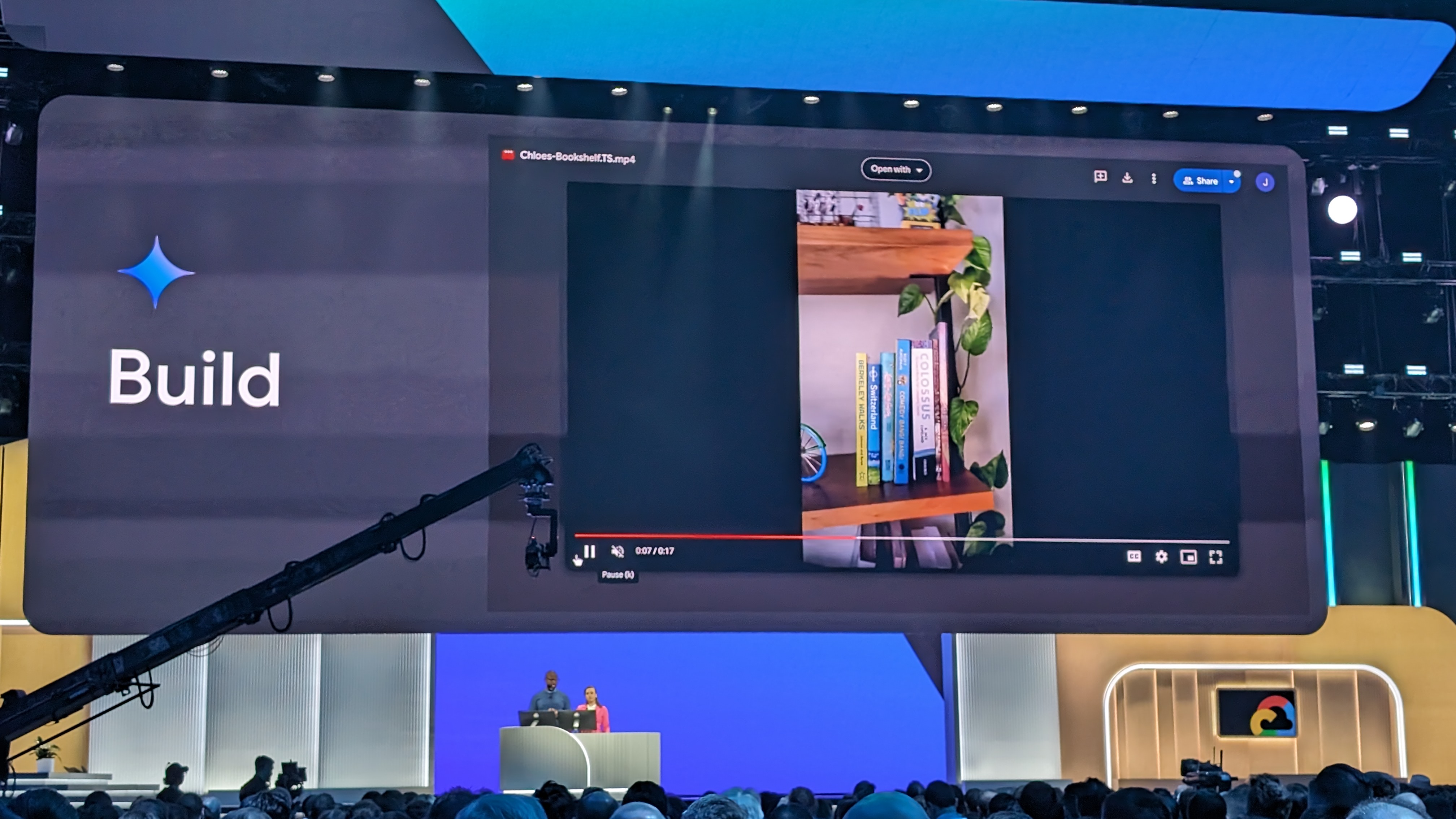
Now we're moving on to how generative AI can help build apps quickly and simply with Google AI Studio.
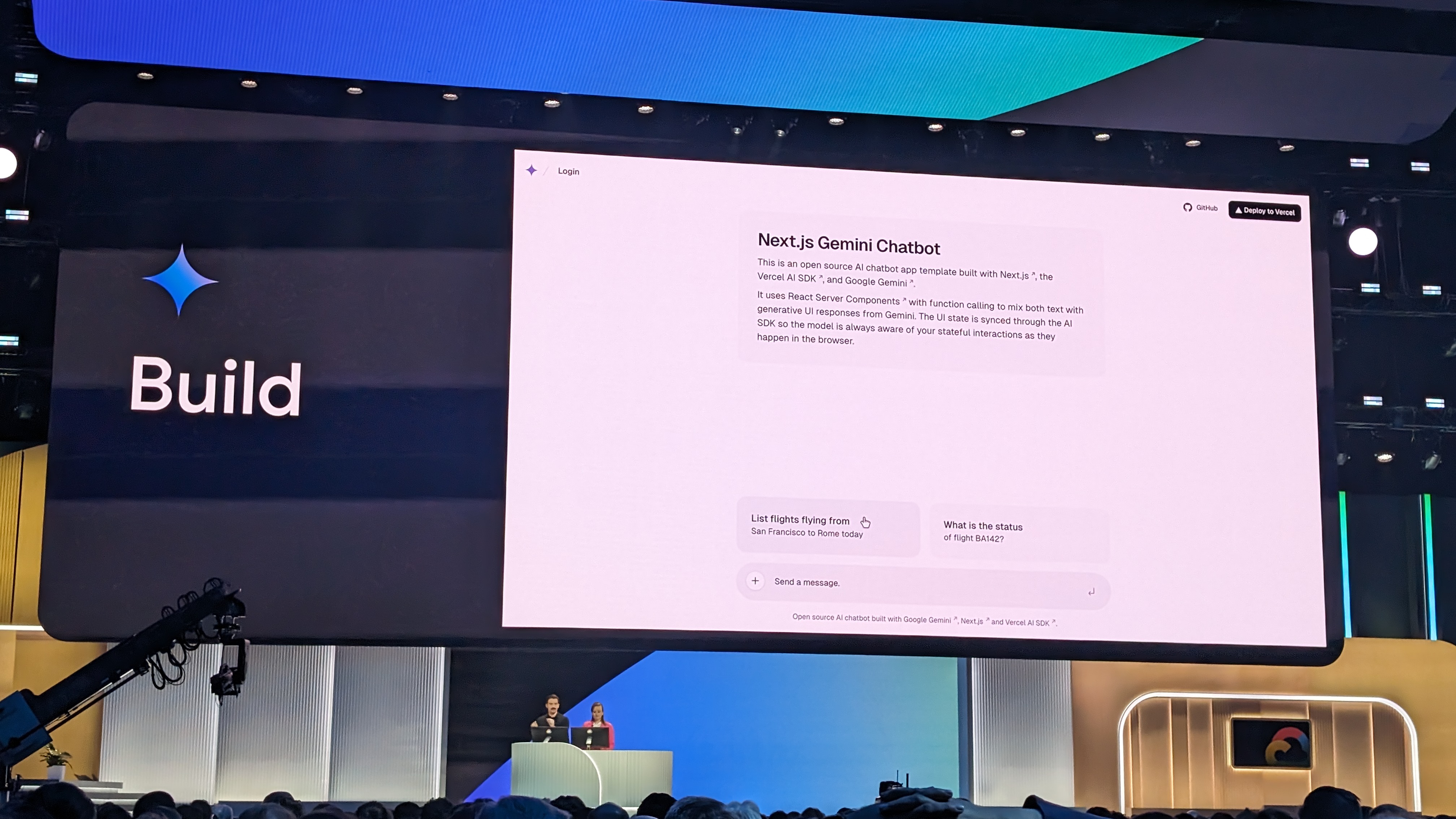
To show just how easy it can be, the CEO of Vercel, Guillermo Rauch, to explore how AI applications can become more effective and reliable with what it calls "generative UI".
We're now moving on to running and deploying with Gemini.
Using a demo aimed at building a better chat agent experience for an online store, Gemini is able to offer highly specific and personalized suggestions using a customized multi-modal model.
It can be as simple or as complicated as you need, depending on your use case, the company notes.
First mention of the day for Kubernetes, as these apps are built on Google Kubernetes Engine (GKE).
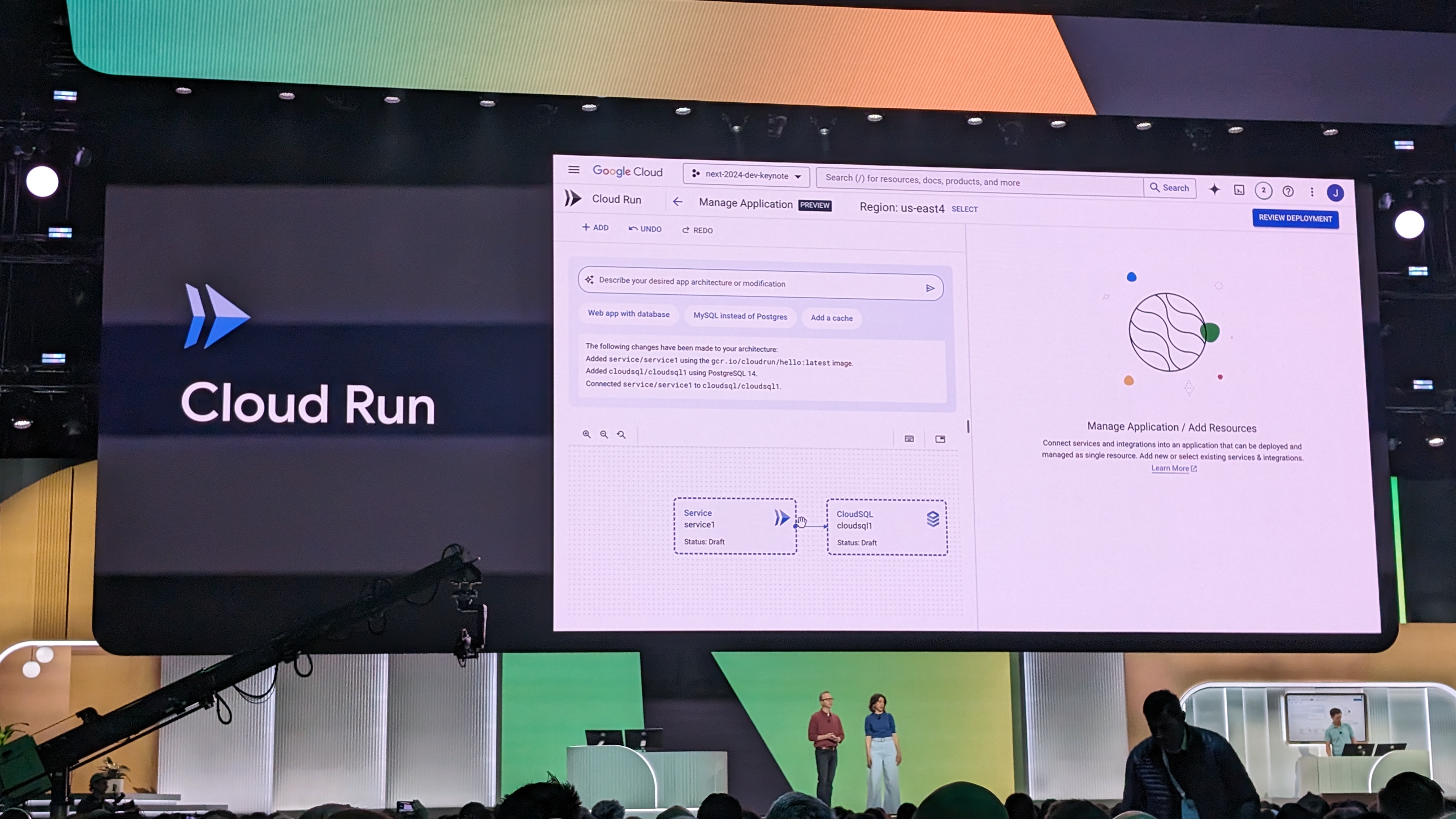
Chen Goldberg, VP and GM of Cloud Runtimes, is next on stage to talk about Gemini and its effect on containers.
"We think AI can create and run all kinds of modern apps," she notes, highlighting how Cloud Run can quickly and easily do a lot of the background heavy lifting for application developers, even when deploying across multiple regions.
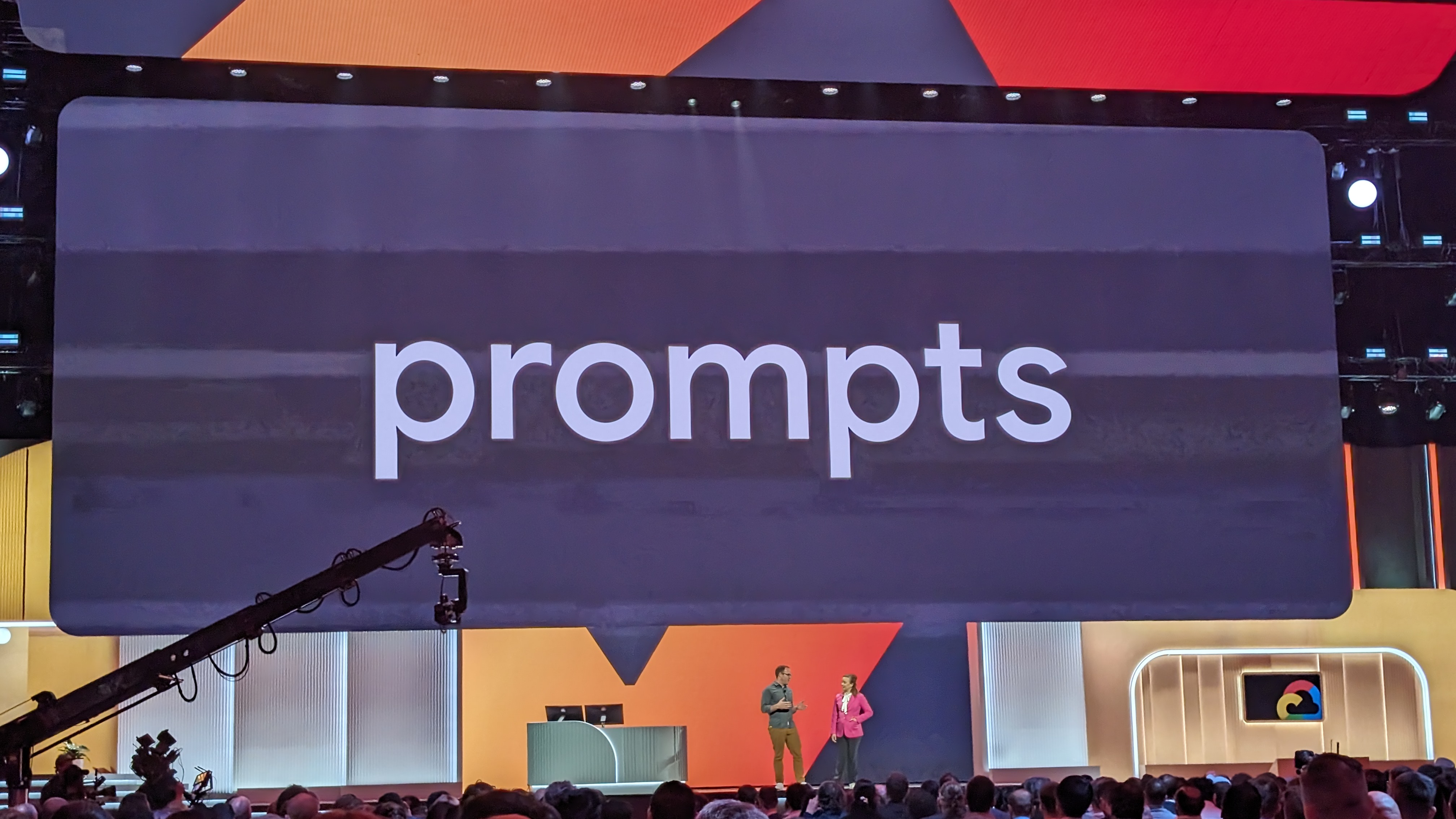
For the final portion of the keynote, we're moving on to how developers are using Gemini to detect and fix issues with their applications.
"Realibility Advocate" Stephen McGhee comes to the stage to explains what Google Cloud can offer - one word, prompts.
Prompts investigations and evaluations are coming to Vertex AI, hopefully making it easier for developers to spot exactly what issues may be popping up.
This offers a lot more context and information for troubleshooters - and can then be used as the "groundtruth" for future prompts ad queries.
So-called "emergent behavior" can create previously unknown issues, so have the right controls for prompts is vital.
And with that, that's a wrap on the day two keynote - it's clear AI has such a major role to play in the developer world, and Google Cloud wants to take centre stage to do just that.
We're off for a quick coffee, but we'll be back shortly with our first media roundtable, focused on all the new tools announced for Google Workspace.
After a quick lunch, we're back to it, with a Q&A around Google Workspace, hosted by Kristina Behr, VP of Product, Google Workspace Collaboration.
We're expecting to hear more about the new releases and announcements from yesterday, and how they will benefit users everywhere...
In a short introduction, Behr mentions the launch of Google Vids as her personal highlight of Google Cloud Next 24 so far.
The future of workplace communication is increasingly video-based, she says - whether that's everyday video conferencing, marketing materials, or even new business pitches.
With that, we move on to questions, with Behr asked about potential issues around images generated by AI.
She notes that the company looks at its user journey first, so image generation is a key part of the process, whether that's for a slide or any kind of business document.
Next, asked about AI's impact on our everyday working lives, Behr notes that part of it is efficiency gains, but also allowing people to show up as their best selves - with image generation allowing users to show a bit more of their own personality in presentations, documents and more.
Next up is a question about the availability of Google Vids - Behr clarifies that although it is only available for Gemini AI users right now, it links easily with the rest of Google Workspace.
When will we see Google Vids released? Google was a bit cagey on release dates, but Behr notes the company wants to create a product that users are fans of, and part of that is making sure everything it releases, especially something as AI-based, is as accurate as possible.
As a follow-up, she reminds that Vids will be part of the Gemini for Workspace existing SKU offering, so will add extra value to users.
Vids is coming to Workspace Labs in June 2024, and then it'll be a matter of what customers say before a general launch is announced, Behr adds.
Google has done a lot of work around localization for Workspace, but why is it still missing several key markets, particularly Japan, China and others, Behr is asked.
Her response is that Google wants to have everything as polished as possible in English before rolling out.
Final question - and again it's about Vids.
Behr hopes the videos will be intended for work, so won't necessarily be Hollywood-quality, but that the sweet spot for Vids length will be around three minutes.
And that's a wrap here - we're off for some 1:1 interviews, but will be back shortly with another media roundtable - this one with Google Cloud CEO Thomas Kurian.
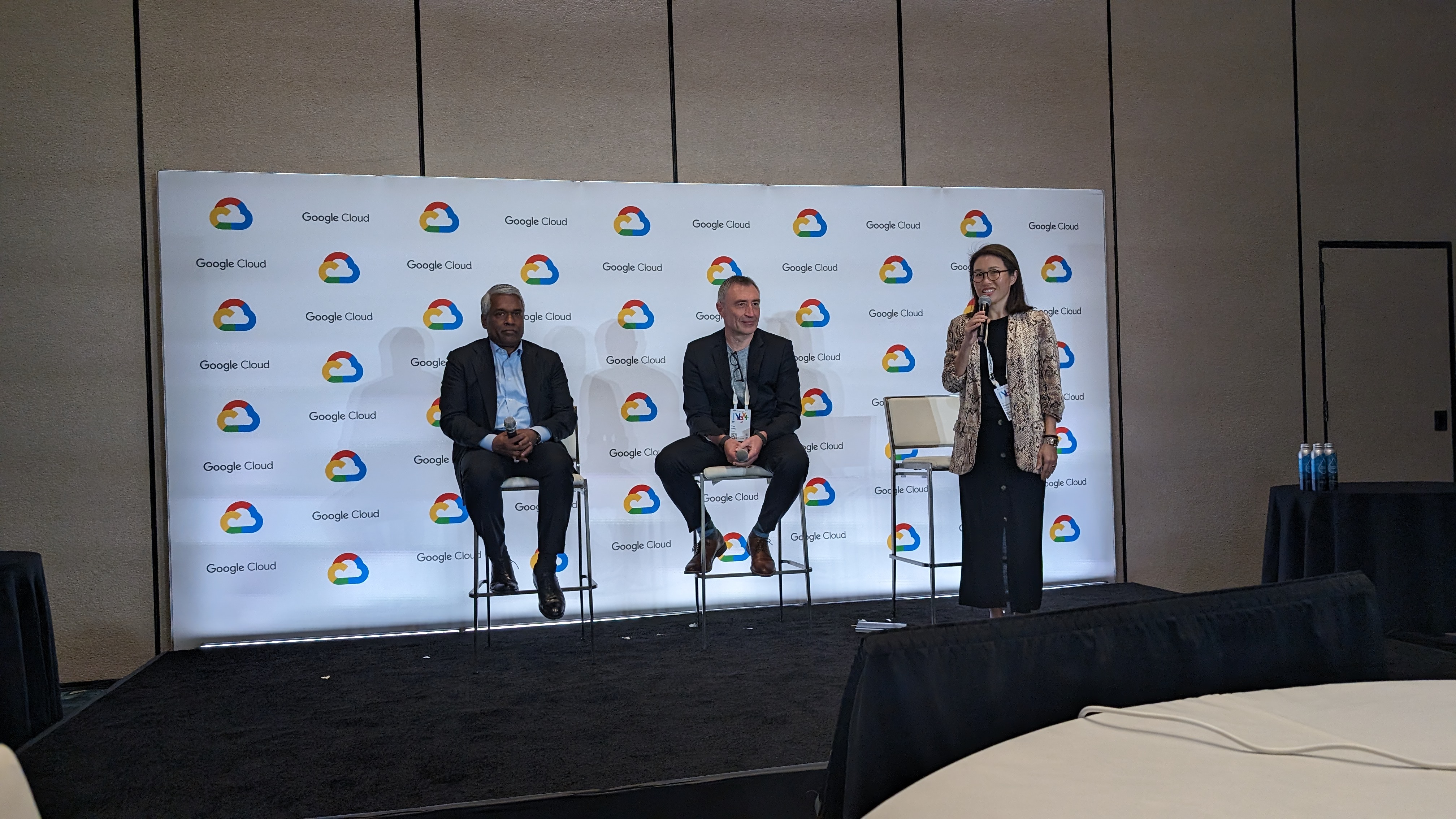
We're in and seated with Thomas Kurian, alongside Tara Brady, head of Google Cloud in EMEA.
He notes Google Cloud's great growth, noting, "The scuccess comes from having three important things - having the right strategy, the right products....and a great global market organization"
"We're vertically optmized...we're very optimistic given the interest we're seeing from customers."
Kurian hands over to Tara Brady, to talk about Google Cloud's EMEA strategy.
"The excitement...is overwhelming," he says, "it's clear customers still have the same challenges...and it's understanding these that will help us succeed."
Now it's time for Q&A.
First up, Kurian and Brady are asked about how Gen AI can have a long-term impact on back-end systems.
Kurian says he wouldn't assume the state of the future will be conversational alone, and as models become more multi-modal, how users interact with those systems will change.
"The interface between people and computers is changing...we'll see many new things changing."
Next, the panel is asked what Google's biggest advantage and disadvantages are in the market right now.
Kurian says there are four major strengths when it comes to AI - having a capable platform, offering a choice of models, ability to connect in a heterogenous environment, and allowing businesses to adapt easily to a current environment.
When it comes to things to improve, Kurian says security is a tricky area to break into, given the dominance of many other players in the market right now.
Asked about the next steps with AI across platforms such as CRM and ERP for Workspace, Kurian says Google is working with partners to get more Gen AI into SaaS platforms, and is working with "all the major players in the application space".
Next - a question about "small AI" - could this be the next big thing in the space, with demand with lightweight models on the rise?
Kurian says there's a need to frame the debate properly, as training any kind of model is a complex task.
"Training a model is not something you want hundreds of thousands of people to do," he notes, highlighting how Samsung uses a smaller version of Imagen AI models.
Next up, a question about the utility of AI as a whole - when it comes to SMBs, is this something Google Cloud is looking to promote?
Kurian says the company has created lots of solutions for SMBs already, from healthcare to restaurants - it's about finding the right use case for the scenarios. Google Cloud is also making its products easier to use, with extra personalization and customization options.
Brady adds that education is also a factor, and making sure competitive practices remain active, with AI offering a chance to get ahead of the competition.
Kurian also adds that many SMBs don't have IT departments, so Google Cloud aims to package its services into systems quickly and seamlessly.
Is there a reliance on generative AI to build giving enough of a business advantage for companies?
Kurian says systems such as ERP are important, but often companies won't differentiate themselves using such systems. But AI can be different, and allow for companies to stand out.
Finally, it's a question about Google offering business applications to differentiate?
Kurian says it's not on the agenda right now - but you never know in the future!
And with that, it's a wrap on day two of Google Cloud Next 24!
Stay tuned for the final wrap-ups tomorrow, but also much more news and write-ups to come...







